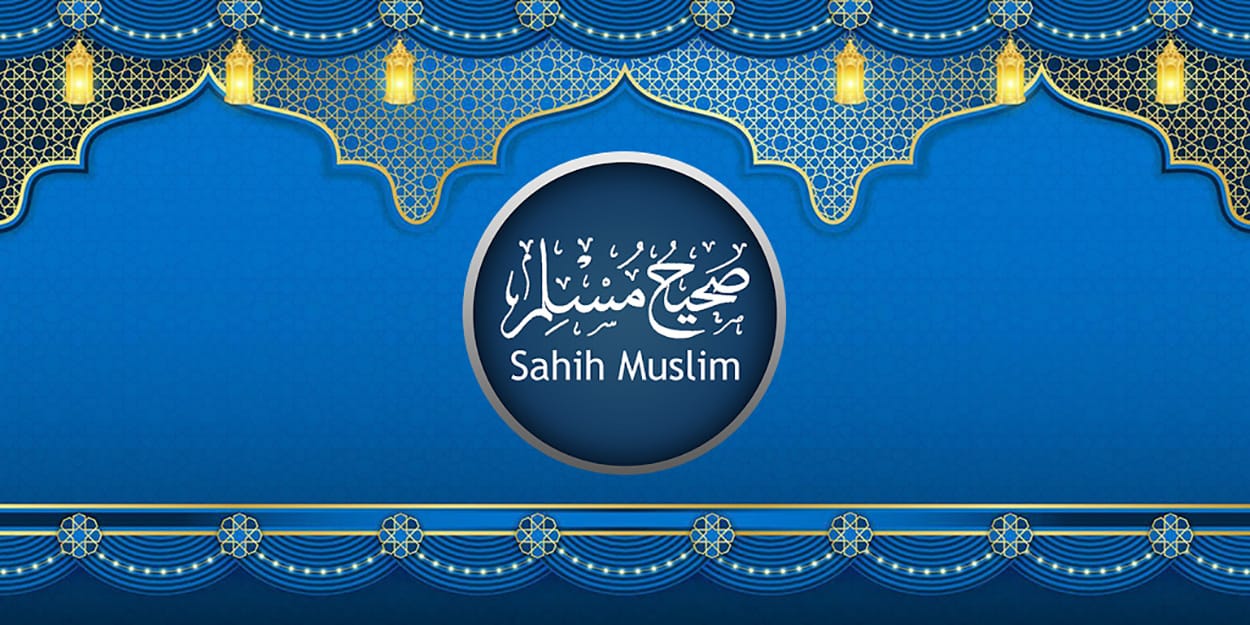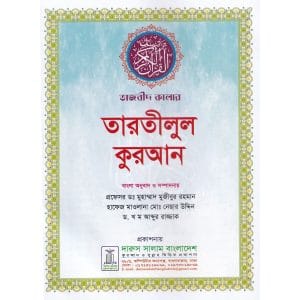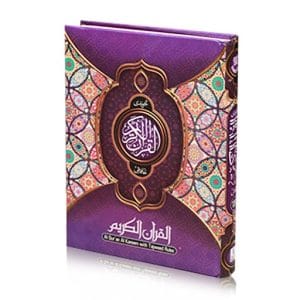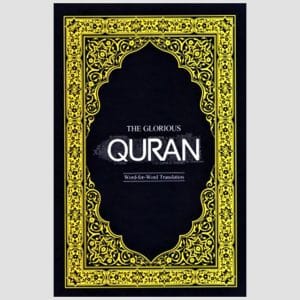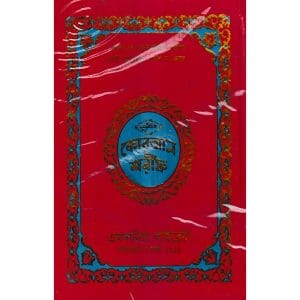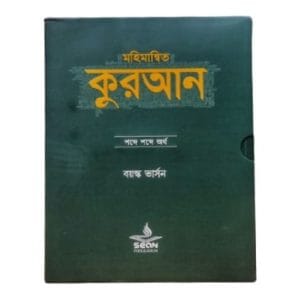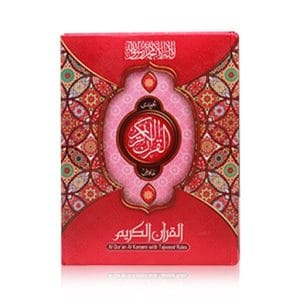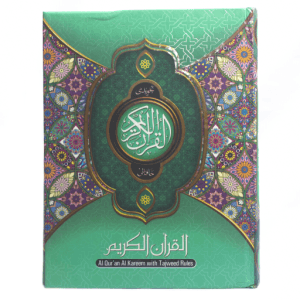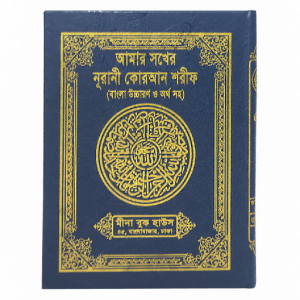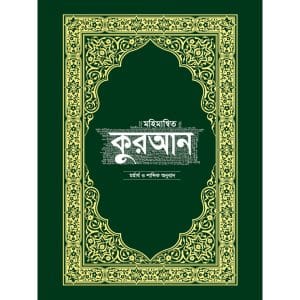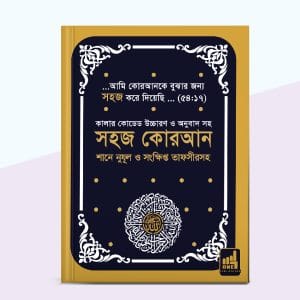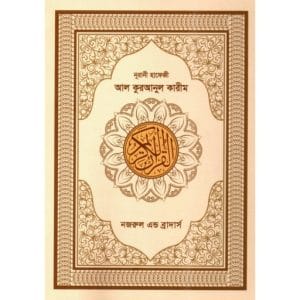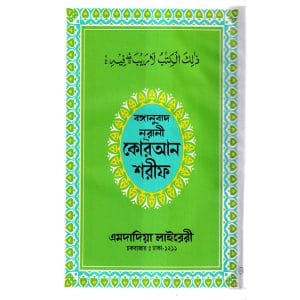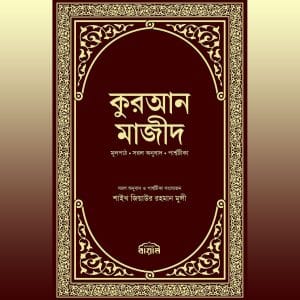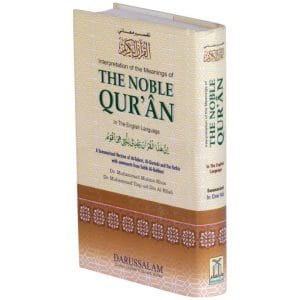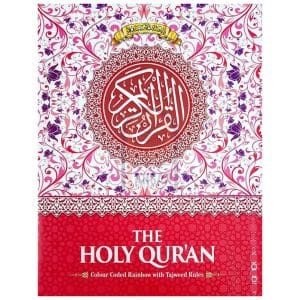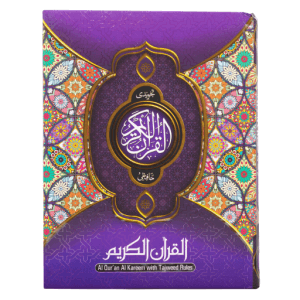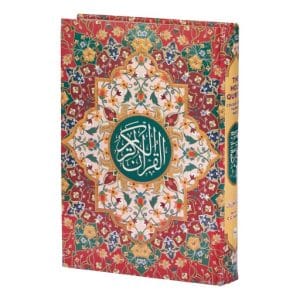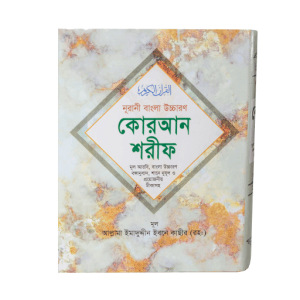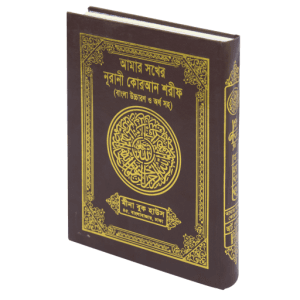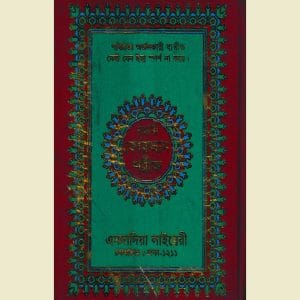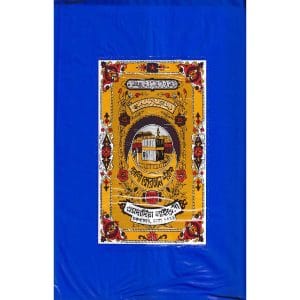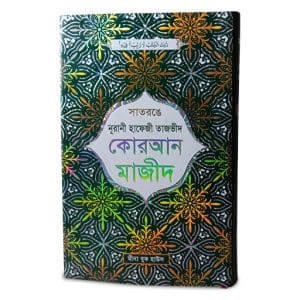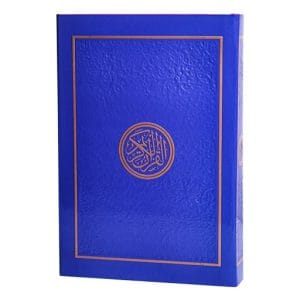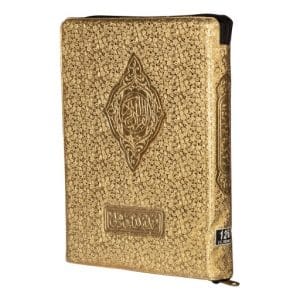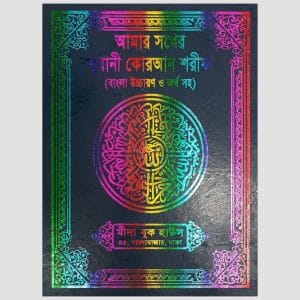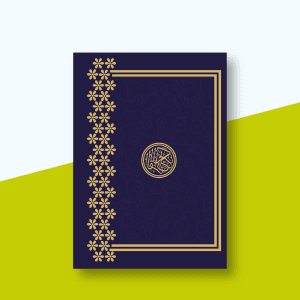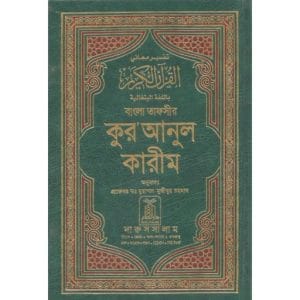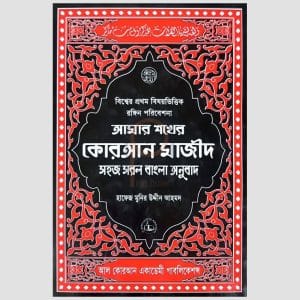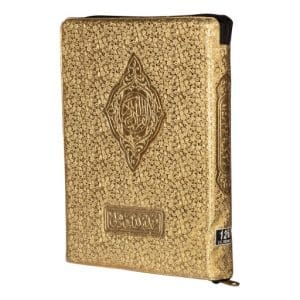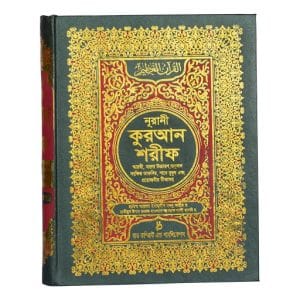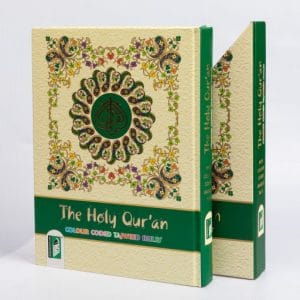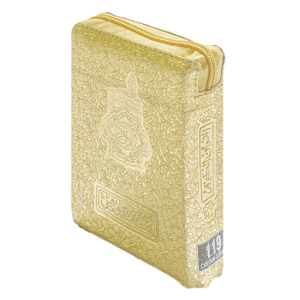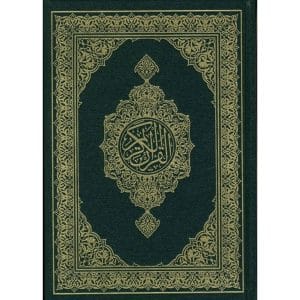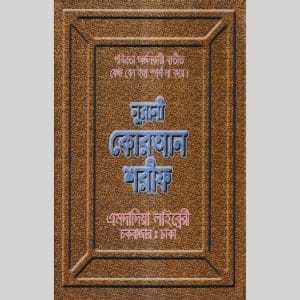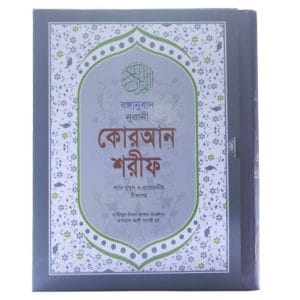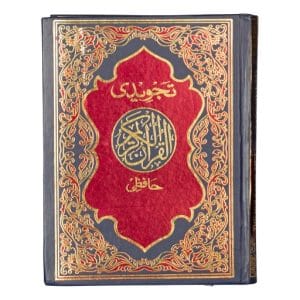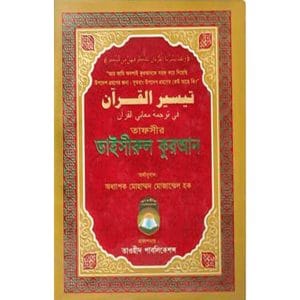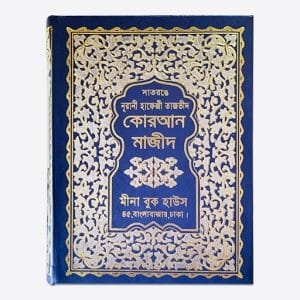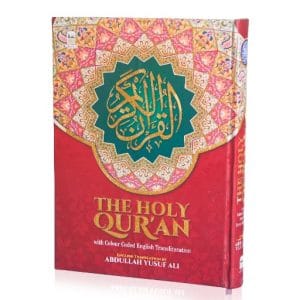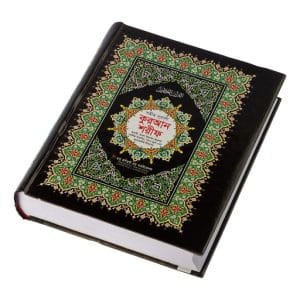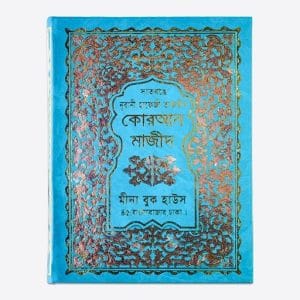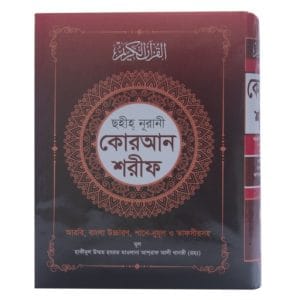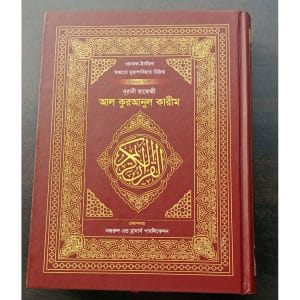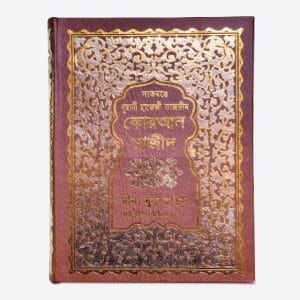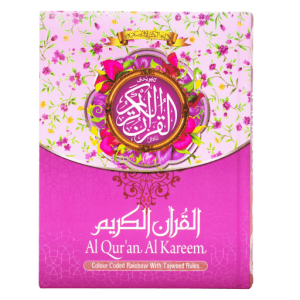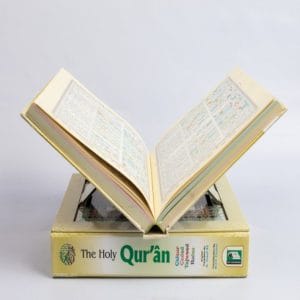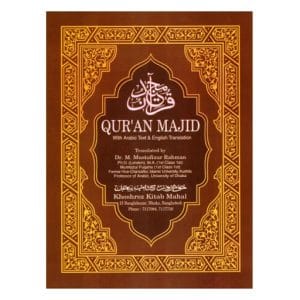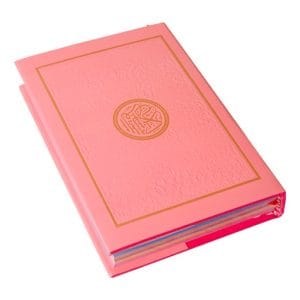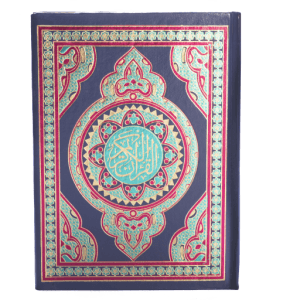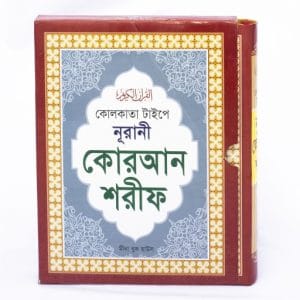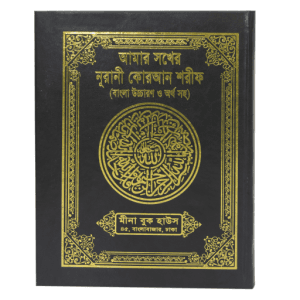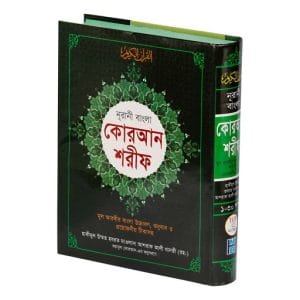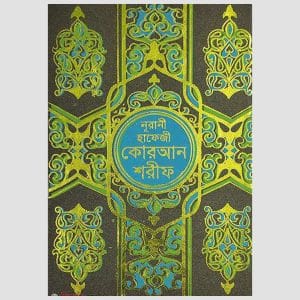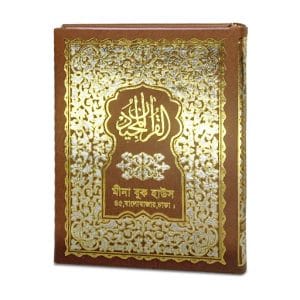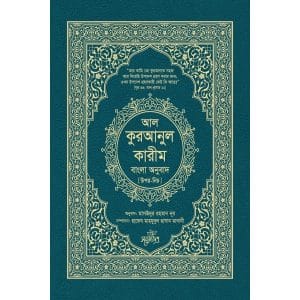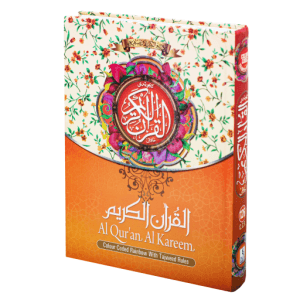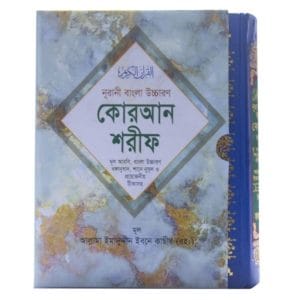Abu Sa’id al-Khudri reported Allah’s Messenger (way peace be upon him) as saying:
No sadaqa (zakat) is payable on less than five wasqs of (dates or grains), on less than five camel-heads and on less than five uqiyas (of silver).
Sahih Muslim Hadith 2134
A hadith like this has been narrated by ‘Amr b. Yahya with the same chain of transmitters.
Sahih Muslim Hadith 2135
‘Umara reported:
I heard Abd Sa’id al-Khudri as saying that he had heard Allah’s Messenger (ï·º) make (this) observation with a gesture of his five fingers, and then he narrated the hadith as transmitted by ‘Uyaina (hadith 2134).
Sahih Muslim Hadith 2136
Abu Sa’id al-Khudri reported Allah’s Messenger (ï·º) as saying:
No Sadaqa (zakat) is due on less than five wasqs of (dates or grains), on less than five camel-heads, and on less than five uqiyas (of silver).
Sahih Muslim Hadith 2137
Abu Sa’id al-Khudri reported Allah’s Messenger (ï·º) as saying:
No Sadaqa is payable on less than five wasqs of dates or grains.
Sahih Muslim Hadith 2138
Abu Sa’id al-Khudri reported Allah’s Messenger (ï·º) as saying:
No Sadaqa is payable on the grains and dates till it (comes to the Weight) of five wasqs, or less than five heads of camels, or less than five uqiyas (of silver).
Sahih Muslim Hadith 2139
A hadith like this has been narrated by Isma’il b. Umayya with the same chain of transmitters.
Sahih Muslim Hadith 2140
A hadith like this has been narrated by Isma’il b. Umayya with the same chain of transmitters, but instead of the word dates, fruit has been used.
Sahih Muslim Hadith 2141
Jabir b. ‘Abdullah reported Allah’s Messenger (ï·º) as saying:
No Sadaqa is payable on less than five fiqiyas of silver, and on less than five heads of camels, and less than five wasqs of dates.
Sahih Muslim Hadith 2142
Jabir b. Abdullah reported Allah’s Messenger (ï·º) as saying:
A tenth is payable on what is watered by rivers, or rains, and a twentieth on what is watered by camels.
Sahih Muslim Hadith 2143
Abu Huraira reported Allah’s Messsenger (ï·º) as saying:
No Sadaqa is due from a Muslim on his slave or horse.
Sahih Muslim Hadith 2144
Abu Huraira reported Allah’s Messenger (ï·º) as saying:
No Sadaqa is due from a Muslim on his slave or horse.
Sahih Muslim Hadith 2145
A hadith like this has been narrated by Abu Huraira through another chain of transmitters.
Sahih Muslim Hadith 2146
Abu Huraira reported Allah’s Messenger (ï·º) as saying:
There is no Sadaqa on a slave except Sadaqat-ul-Fitr.
Sahih Muslim Hadith 2147
Abu Huraira reported that the Messenger of Allah (ï·º) sent Umar for (collecting) Sadaqa (zakat), and it was said that Ibn Jamil, Khalid b. Walid and ‘Abbas the uncle of the Messenger of Allah (ï·º), refused (to pay it). Upon this the Messenger of Allah (ï·º) said:
Ibn Jamil is taking revenge but for this that he was destitute and Allah made him rich. As regards Khalid, you are unjust to Khalid, for be reserved his armours and weapons for the sake of Allah, and as for ‘Abbas, I shall be responsible for it and an equal amount along with it. And he again said: ‘Umar, bear this in mind, the uncle of a person is like his father.
Sahih Muslim Hadith 2148
Ibn Umar said that Allah’s Messenger (way peace be upon him) prescribed the payment of Zakat-ul-Fitr (on breaking the fast) of Ramadan for people, for every freeman, or slave, male and female among the Muslims-one sa’ of dried dates, or one sa’ of barley.
Sahih Muslim Hadith 2149
Ibn ‘Umar said that the Messenger of Allah (ï·º) prescribed Zakat-ul-Fitr one sa’ of dates or one sa’ of barley for every slave or freeman, young or old.
Sahih Muslim Hadith 2150
Ibn ‘Umar said that the Messenger of Allah (ï·º) prescribed the Sadaqa of Ramadan (Sadaqat-al-Fitr) one sa’ of dates or one sa’ of barley for every free man or a slave, male or female, and then the people equalised (one sa’ of dates or barley) with half a sa’ of wheat.
Sahih Muslim Hadith 2151
Abdullah b. Umar reported that the Messenger of Allah (ï·º) ordered the (payment of) Zakat-ul-Fitr one sa’ of dates, or one sa’ of barley. Ibn ‘Umar (‘Abdullah b. ‘Umar) further said:
The people equalised it (then) with two mudds of fine wheat.
Sahih Muslim Hadith 2152
Ibn Umar reported that the Messenger of Allah (ï·º) prescribed Zakat-ul-Fitr of Ramadan one sa’ of dates or one sa’ of barley for every individual among the Muslims (whether) free man or slave, male or female, young or old.
Sahih Muslim Hadith 2153
Sad b. Abu Sarh heard Abu Sa’id al-Khudri as saying:
We used to take out as the Zakat of Fitr one sa’ of grain, or one sa’ of barley or one sa’ of dates, or one sa’ of cheese or one sa’ of raisins.
Sahih Muslim Hadith 2154
Abd Sa’id al-Khudri reported:
We, on behalf of every young or old, free man or slave (amongst us), used to take out during the lifetime of the Messenger of Allah (ï·º) as the Zakat of Fitr one sa’ of grain, or one sa’ of cheese or one sa’ of raisins. And we continued taking out these till Mu’awiya b. Abu Sufyan came to us for pilgrimage or ‘Umra, and addressed the people on the pulpit and said to them: I see that two mudds of zakat out of the wheat (red) of Syria is equal to one sa’ of dates. So the people accepted it. But Abu Sa’id said: I would continue to take out as I used to take out (before, i e. one sa’) as long as I live.
Sahih Muslim Hadith 2155
Sa’d b. Abu Sarh heard Abu Sa’id al-Khudri as saying:
We, on behalf of young or old, free or slave, used to take out the Zakat of Fitr while the Messenger of Allah (may peace he upon him) was among us, in three kinds, one sa’ of dates, one sa’ of cheese, or one sa’ of barley, and we continued to take that out till the time of Mu’awiya, for he saw that two mudds of wheat were equal to one sa’ of dates. Abu Sa’id sald: I would continue to take that out as before (i e. one sa’ of wheat).
Sahih Muslim Hadith 2156
Abu Sa’id al Khudri reported:
We used to take out the Zakat of Fitr in three kinds, cheese, dates and barley.
Sahih Muslim Hadith 2157
Abu Sa’id al-Khudri reported that when Mu’awiya prescribed half a sa’ of wheat equal to one sa’ of dates, he (Abu Sa’id al-Khudri) objected to it, and said:
I would take out (Sadaqat-ul-Fitr) but that which I used to bring forth during the lifetime of the Messenger of Allah (ï·º) one sa’ of dates, or one sa’ of raisins, or one sa’ of barley, or one sa’ of cheese.
Sahih Muslim Hadith 2158
Ibn ‘Umar reported that the Messenger of Allah (ï·º) ordered that the Sadaqat-ul-Fitr should be paid before the people go out for prayer.
Sahih Muslim Hadith 2159
Abdullah b ‘Umar reported that the Messenger of Allah (ï·º) ordered the payment of Sadaqat-ul-Fitr before people go out for prayer.
Sahih Muslim Hadith 2160
Abu Huraira reported Allah’s Messenger (way peace be upon him) as saying:
If any owner of gold or silver does not pay what is due on him, when the Day of Resurrection would come, plates of fire would be beaten out for him; these would then be heated in the fire of Hell and his sides, his forehead and his back would be cauterized with them. Whenever these cool down, (the process is) repeated during a day the extent of which would be fifty thousand years, until judgment is pronounced among servants, and he sees whether his path is to take him to Paradise or to Hell. It was said: Messenger of Allah, what about the camel? He (the Holy Prophet) said: If any owner of the camel does not pay what is due on him, and of his due in that (camel) is (also) to milk it on the day when it comes down to water. When the Day of Resurrection comes a soft sandy plain would be set for him, as extensive as possible, (he will find) that not a single young one is missing, and they will trample him with their hoofs and bite him with their mouths. As often as the first of them passes him, the last of them would be made to return during a day the extent of which would be fifty thousand years, until judgment is pronounced among servants and he sees whether his path is to take him to Paradise or to Hell. It was (again) said: Messenger of Allah, what about cows (cattle) and sheep? He said: It any owner of the cattle and sheep does not pay what is due on them, when the Day of Resurrection comes a soft sandy plain would be spread for them, he will find none of them missing, with twisted horns, without horns or with a broken horn, and they will gore him with their horns and trample him with their hoofs. As often as the first of them passes him the last of them would be made to return to him during a day the extent of which would be fifty thousand years, until judgment would be pronounced among the servants. And he would be shown his path-path leading him to Paradise or to Hell. It was said: Messenger of Allah, what about the horse? Upon this he said: The horses are of three types. To one than (these are) a burden, and to another man (these are) a covering, and still to another man (these are) a source of reward. The one for whom these are a burden is the person who rears them in order to show off, for vainglory and for opposing the Muslims; so they are a burden for him. The one for whom these are a covering is the person who rears them for the sake of Allah but does not forget the right of Allah concerning their backs and their necks, and so they are a covering for him. As for those which bring reward (these refer to) the person who rears them for the sake of Allah to be used for Muslims and he puts them in meadow and field. And whatever thing do these eat from that meadow and field would be recorded on his behalf as good deeds, as would also the amount of their dung and urine. And these would not break their halter and prance a course or two without having got recorded the amount of their hoof marks and their dung as a good deed on his behalf (on behalf of their owner). And their master does not bring them past a river from which they drink, though he did not intend to quench their thirst, but Allah would record for him the amount of what they drink on his behalf as deeds. It was said: Messenger of Allah, what about the asses?, Upon this he said: Nothing has been revealed to me in regard to the asses (in particular) except this one verse of a comprehensive nature:” He who does an atom’s weight of good will see it, and he who does an atom’s weight of evil will see it” (xcix. 7)
Sahih Muslim Hadith 2161
This hadith has been narrated by Zaid b. Aslam with the same chain of transmitters except that he said:
” None among the owners of camels who does not pay their due,” but did not say” their due (Zakat) out of them.” and he make a mention:” He did not miss a single young one out of them.” and he said:” Their sides. their foreheads and their backs would be cauterised.”
Sahih Muslim Hadith 2162
Abu Huraira reported Allah’s Messenger (ï·º) as saying:
No owner of the treasure who does not pay Zakat (would be spared) but (his hoards) would be heated in the Fire of Hell and these would be made into plates and with these his sides, his forehead would be cauterised till Allah would pronounce judgment among His servants during a day, the extent of which would be fifty thousand years. He would then see his path, leading either to Paradise or to Hell. And no owner of the camels who does not pay Zakat (would be spared) but a soft sandy plain would be set for him and they (the camels) would be made to pass over him till the last of them would be made to return till Allah would pronounce judgment among His servants during a day the extent of which would be fifty thousand years. He would then see his path leading him to Paradise or leading him to Hell. And no owner of the (cattle and) goats who does not pay Zakat (would be spared) but a soft sandy plain would be set for him, he would find none of them missing, with twisted horns, without horns, or with broken horns, and they will gore him with their horns and trample him with their hoofs and they would be made to pass over him till the last of them would be made to return till Allah would pronounce judgment among His servants, during a day the extent of which would be fifty thousand years, and he would see the paths leading to Paradise or to Hell. Suhail said: I do not know whether he made mention of the cows. They said: Messenger of Allah (ï·º), what about the horses? He said: The horses have goodness in their foreheads (or he said) or goodness is ingrained in the foreheads of the horses (Suhail said: I am in doubt as to what was actually said) up till the Day of judgement. The horses are of three kinds. They are a source of reward to a person, they are a covering to a person, and they are a burden to a person. As for those which bring reward is that a person would get reward who rears them for the sake of Allah and trains them for Him, and nothing disappears in their stomachs but Allah would record for him a good deed. And if they were to graze in the meadow, they would eat nothing but Allah would record for him a reward. And if they were to drink water from the canal, with every drop that, would disappear in their stomachs there would be reward (for the owner). He went on describing till a reward was mentioned for their urine and dung. And if they pranced a course or two, there would be recorded a reward for every pace that they covered. As for one for whom they are a covering, he is the man who rears them for honour and dignity but does not forget the right of their backs and their stomachs, in plenty and adversity, As regards one for whom they are a burden, he is that who rears them for vainglory and showing off to the people; for him they are, the burden. They said: Messenger of Allah, what about asses? He said: Allah has not revealed to me anything in regards to it except this one comprehensive verse:” He who does an atom’s weight of good will see it, and he who does an atom’s weight of evil will see it” (xcix. 7).
Sahih Muslim Hadith 2163
This hadith has been narrated by Suhail b. Abu Salih with the same chain of transmitters, and he said he substituted the word aqsa’ with ‘adba’ and said:
” his side and his back,” but he made no mention of his forehead.
Sahih Muslim Hadith 2164
This hadith has been narrated by Abu Huraira through another chain of transmitters:
The Messenger of Allah (ï·º) said:” When a person does not pay what is due to Allah or Sadaqa of his camels….” The rest of the hadith is the same.
Sahih Muslim Hadith 2165
Jabir b. ‘Abdullah al-Ansari reported Allah’s Messenger (ï·º) as saying:
The owner of a camel who does not pay what is due on it (would be punished in this way) that on the Day of Resurrection many more (along with his camel) would come and the owner would be made to sit on a soft sandy ground and they would trample him with their feet and hooves. And no owner of the cattle who does not pay what is due on them (would be spared the punishment) but on the Day of Resurrection, many more would come and he (the owner) would be made to sit on the soft sandy ground and would be gored by their horns and trampled under their feet. And no owner of the goats and sheep who does not pay what is due on them (would be spared of punishment) but many more would come on the Day of Resurrection and he (the owner) would be made to sit on a soft sandy ground and they would gore him with their horns and trample him under their hooves. And there would be more (among this flock of sheep and goat) without horns or with broken horns. And no owner of the treasure who does not pay its due but his treasure would come on the Day of Resurrection like a bald snake and would pursue him with its mouth open, and when it would come near he would run away from it, and he would be called thus:” Take your treasure which you concealed, for I do not need it.” When he would find no way out he would put his hand in its mouth and it would gnaw it like a he-camel. Abu Zubair said: We heard Ubaid b. Umair saying this. We then asked Jabir b. ‘Abdullah about this. And he also said like Ubaid b. Umair, Abu Zubair said: I heard ‘Ubaid b. ‘Umair saying: A man said: Messenger of Allah, what is due on camels? He said: Milking them near water, and lending of bucket (used for drawing water from it), or lending its male for mating with a she-camel and providing it as a ride for the sake of Allah.
Sahih Muslim Hadith 2166
Jabir b. Abdullah reported the Messenger of Allah (ï·º) as saying:
No owner of camels or cattle or flock of sheep or goats who does not pay his due (would be spared punishment) but would be made to sit on the Day of Resurrection on a soft sandy ground and the hoofed animals would trample him with their hoofs and gore him with their horns. And none of them on that day would be without horns, or with broken horns. We said: Messenger of Allah, but what is due on them? He said: Lending of the male (for use) and lending of the bucket (used for drawing water for them) and for mating and milking them near water and providing them as a ride for the sake of Allah. And no owner of the property who does not pay Zakat (would be spared punishment) but it (his property) would turn into a bald snake and would follow its owner wherever he would go, and he would run away from it, and it would be said to him: That is your property about which you were stingy. And when he would find no other way out he would thrust his hand in its mouth and it would gnaw it like a male camel.
Sahih Muslim Hadith 2167
Jabir b. ‘Abdullah reported:
There came people from among the Bedouins to the Messenger of Allah (ï·º) and said: Collectors of Sadaqa come to us and treat us unjustly. Upon this the Messenger of Allah (ï·º) said: Please your collectors. Jarir said: Ever since I heard it from the Messenger of Allah (ï·º) no collector had departed but was pleased with me.
Sahih Muslim Hadith 2168
This hadith has been narrated by Muhammad b. Isma’il with the same chain of transmitters.
Sahih Muslim Hadith 2169
Abu Dharr reported:
I went to the Messenger of Allah (ï·º) and he was sitting under the shade of the Ka’ba. As he saw me he said: By the Lord of the Ka’ba, they are the losers. I came there till I sat and I could not stay (longer) and (then) stood up. I said: Messenger of Allah, let my father, be ransom for you, who are they (the losers)? He said: They are those having a huge amount of wealth except so and so and (those who spend their wealth generously on them whom they find in front of them, behind them and on their right side and on their left side) and they are a few. And no owner of camels, or cattle or goat and sheep, who does not pay Zakat (would be spared punishment) but these (camels, cattle, goats and sheep) would come on the Day of Resurrection wearing more flesh and would gore him with their horns and trample them with their hooves. And when the last one would pass away, the first one would return (to trample him) till judgment would be pronounced among people.
Sahih Muslim Hadith 2170
Abu Dbarr reported:
I went to the Messenger of Allah (ï·º) and he was sitting under the shade of the Ka’ba, and the rest of the hadith it the same but for this that he (the Holy Prophet) said:” By Allah, in Whose hand is my life, no person on earth who dies and leaves behind camels, or cattle or goat and sheep, and does not pay Zakat (would be spared the punishment).”
Sahih Muslim Hadith 2171
Abu Huraira reported that the Prophet (ï·º) said:
Nothing is more delighting to me than this that Uhud should be of gold for me, and no dinar is left with me out of it before three nights pass except a dinar which I would set aside for the repayment of debt upon me.
Sahih Muslim Hadith 2172
Abu Huraira reported the same from the Prophet (ï·º).
Sahih Muslim Hadith 2173
Abu Dharr reported:
I walked with the Messenger of Allah (ï·º) on the stony ground of Medina in the afternoon and we were looking at Uhud. The Messenger of Allah (way peace by upon him) said: Abu Dharr! I said: Messenger of Allah, I am here at thy beck and call. He said: What I desire is that Uhud be gold with me and three nights should pass and there is left with me any dinar but one coin which I would keep to pay debt. (I love) to spend it among the servants of Allah like this and he pointed in front of him, and on his right side and on his left side. We then proceeded on and he said: Abu Dharr. I said: At thy beck and call, Messenger of Allah. He (the Holy Prophet) said: The rich would be poor on the Day of Resurrection, but he who spent like this and like this and like this, and he pointed as at the first time. We again went on when he said. Abu Dharr, stay where you are till I come back to you. He (the Holy Prophet) then moved on till he disappeared from my sight He (Abu Dharr) said: I heard a sound and I heard a noise. I said (to myself): The Messenger of Allah (ï·º) might have met (mishap or an enemy). I wished to follow him but I remembered his command for not departing till he would come back. So I waited for him, and when he came I made a mention of what I heard. He said: it was Gabriel, who came to me and said:” He who dies among your Ummah without associating Anything with Allah would enter Paradise. I said: Even if he committed fornication or theft? He said: Even if he committed fornication or theft.
Sahih Muslim Hadith 2174
Abu Dharr reported:
I went out one night (and found) the Messenger of Allah (ï·º) walking all alone. There was no man with him. I thought that he did not like anyone walking along with him. So I began to walk in the light of the moon. He, however turned his attention to me and saw me and said: Who is this? I said: It is Abu Dharr. Let Allah make me as ransom for you. He said: Abu Dharr, come on. He (Abu Dharr) said: So I walked along with him for some time and he said: The wealthy persons would have little (reward) on the Day of Resurrection, except upon whom Allah conferred goodness (wealth). He dispensed it to his right, left, in front of him and at his back (just as the wind diffuses fragrance) and did good with it (riches). I went along with him for some time when He said: Sit here. And he made me sit at a safe place and there were stones around it, and he said to me: Sit here till I come to you. He went away on the stony ground till I could not see him. He stayed away from me, and he prolonged his stay. Then I heard him as he came back and he was saying: Even if he committed theft and even if he committed fornication. When he came I could not help asking him: Apostle of Allah, let Allah make me ransom for you, whom were you speaking on the stony ground? I heard nobody responding to you. He (the Holy Prophet) said: It was Gabriel who met me by the side of the stony ground and said: Give glad tidings to your Ummah that he who died without associating ought with Allah would go into Paradise. I said: Gabriel, even if he committed theft and fornication? He said: Yes. I said: Even it he committed theft and fornication? He said: Yes, I again said: Even if he committed theft and fornication? He said: Yes, even if he drank wine.
Sahih Muslim Hadith 2175
Ahnaf b. Qais reported:
I came to Medina and when I was in the company of the grandees of Quraish a man with a crude body and an uncouth face wearing coarse clothes came there. He stood up before them and said: Give glad tidings to those whom who amass riches of the stones which would be heated in the Fire of Hell, and would be placed at the tick of the chest till it would project from the shoulder bone and would he put on the shoulder bone till it would project from the tick of his chest, and it (this stone) would continue passing and repassing (from one side to the other). He (the narrator) said: Then people hung their heads and I saw none among them giving any answer. He then returned and I followed him till he sat near a pillar. I said: I find that these (people) disliked what you said to them and they do not understand anything. My friend Abu’l-Qasim (Muhammad) (may peace he upon him) called me and I responded to him, and he said: Do you see Uhud? I saw the sun (shining) on me and I thought that he would send me on an errand for him. So I said: I see it. Upon this he said: Nothing would delight me more than this that I should have gold like it (equal to the bulk of Uhud), and I should spend it all except three dinars. (How sad it is) that they hoard worldly riches, and they know nothing. I said: What about you and your brothers Quraish? You do not go to thein for any need and do not accept anything from them. He said: By Allah, I neither beg anything from them (from worldly goods), nor do I ask them anything about religion till I meet my Allah and His Messenger.
Sahih Muslim Hadith 2176
Ahnaf b. Qais reported:
While I was in the company of the (elites) of Quraiah, Abu Dharr came there and he was saying: Give glad tidings to the hoarders of riches that their backs would be branded (so deeply) that (the hot Iron) would come out of their sides, and when the backs of their necks would be branded, it would come out of their foreheads. He (Abu Dharr) then went away and sat down. I asked who he was. They said: He is Abu Dharr. I went to him and said to him: What is this that I heard from you which you were saying before? He said: I said nothing but only that which I heard from their Prophet (ï·º). I again said: What do you say about this gift? He said: Take it, for today it is a help. But when it becomes a price for your religion, then abandon it.
Sahih Muslim Hadith 2177
Abu Huraira reported Allah’s Messenger (ï·º) as saying that Allah, the Most Blessed and High, said:
O son of Adam, spend. I will spend on you. The right hand of Allah is full and overflowing and in nothing would diminish it, by overspending day and night.
Sahih Muslim Hadith 2178
Abu Huraira reported Allah’s Messenger (ï·º) as saying that Allah said to him:
” Spend, I will bestow upon you.” And the Messenger of Allah (ï·º) said: The right hand of Allah is full and spending (the riches) liberally during day and night will not diminish (the resources of Allah). Don’t you see what (an enormous amount of resources) He has spent since He created the heaven and the earth, and what is in His right hand has not decreased? His Throne is upon the water. And in His other hand is death, and He elevates and degrades (whom He likes).
Sahih Muslim Hadith 2179
Thauban reported Allah’s Messenger (ï·º) as saying:
The most excellent dinar is one that a person spends on his family, and the dinar which he spends on his animal in Allah’s path, and the dinar he spends on his companions in Allah’s path. Abu Qilaba (one of the narrators) said: He (the narrator) started with family, and then Abu Qilaba said: Who is the person with greater reward than a person who spends on young members of his family (and thus) preserves (saves them from want) (and by virtue of which) Allah brings profit for them and makes them rich.
Sahih Muslim Hadith 2180
Abu Huraira reported Allah’s Messenger (ï·º) as saying:
Of the dinar you spend as a contribution in Allah’s path, or to set free a slave, or as a sadaqa given to a needy, or to support your family, the one yielding the greatest reward is that which you spent on your family.
Sahih Muslim Hadith 2181
Khaithama reported:
While we were sitting in the company of ‘Abdullah b. ‘Umar there came in his steward. He (Ibn ‘Umar) said: Have you supplied the provision to the slaves? He said: No. Upon this he said: Go and give (the provision) to them, for the Messenger of Allah (ï·º) has said: This sin is enough for a man that he withholds the subsistence from one whose master he is.
Sahih Muslim Hadith 2182
Jabir reported:
A person from the Banu ‘Udhra set a slave free after his death. This news reached the Messenger of Allah (may peace be upon hhn). Upon this he said: Have you any property besides it? He said: No. Upon this he said: Who would buy (this slave) from me? Nulaim b. Abdullah bought it for eight hundred dirhams and (this amount was) brought to the Messenger of Allah (ï·º) who returned it to him (the owner), and then said: Start with your own self and spend it on yourself, and if anything is left, it should be spent on your family, and if anything is left (after meeting the needs of the family) it should be spent on relatives, and if anything is left from the family, it should be spent like this, like this. And he was saying: In front of you, on your right and on your left.
Sahih Muslim Hadith 2183
Jabir reported that a person among the Ansar who was called Abu Madhkur granted posthumous freedom to his slave who was called Ya’qub. The rest of the hadith is the same.
Sahih Muslim Hadith 2184
Anas b. Malik is reported as saying:
Abu Talha was the one among the Ansar of Medina who possessed the largest property and among his property he valued most was his garden known as Bairaha’ which was opposite the mosque, and the Messenger of Allah (ï·º) often visited it and he drank of its sweet water. When this verse was revealed: “You will never attain righteousness till you give freely of what you love” (iii. 91), Abu Talha got up and, going to Allah’s Messenger (ï·º), said: Allah says in His Book: “You will never attain righteousness till you give freely of what you love,” and the dearest of my property is Bairaha’ so I give it as Sadaqa to God from Whom I hope for reward for it and the treasure with Allah; so spend it, Messenger of Allah, on whatever purpose you deem it proper. The Messenger of Allah (ï·º) said: Well done! that is a profitable deal, that is a profitable deal. I have heard what you have said, but I think you should spend it on your nearest relatives. So Abu Talha distributed it among the nearest relatives and his cousins on his father’s side.
Sahih Muslim Hadith 2185
Anas reported that when this verse was tevealed:
” You will not attain righteousness till you give freely of what you love,” Abu Talha said: I see that our Lord has demanded from us out of our property; so I make you a witness, Messenger of Allah. that I give my land known as Bairaha’ for the sake of Allah. Upon this the Messenger of Allah (ï·º) said: Give that to your relatives. So he gave it to Hassan b. Thabit and Ubayy b. Ka’b.
Sahih Muslim Hadith 2186
Maimuna bint Harith reported that she set free a slave-girl during the lifetime of the Messenger of Allah (ï·º) and she made a mention of that to the Messenger of Allah (ï·º) and he said:
Had you gives her to your maternal uncles, you would have a greater reward.
Sahih Muslim Hadith 2187
Zainab, the wife of ‘Abdullah (b. Mas’ud ), reported that the Messenger of Allah (ï·º) said:
0 women, give sadaqa even though it be some of your jewellery. She returned to ‘Abdullah and said: You are a person with empty hands, whereas the Messenger of Allah (ï·º) has commanded us to give sadaqa, so better go to him and ask and if this will suffice for me; otherwise I shall give it to someone else. ‘Abdullah said to me (his wife): You better go yourself. So I went and there was another woman of the Ansar at the door of the Messenger of Allah (ï·º) having the same porpose as I had. Now Allah’s Messenger (ï·º) was invested with awe (so we did not like to knock). Then Bilal came out and we said to him: Go to the Messenger of Allah (ï·º) and inform him that there are two women at the door asking him whether it will serve them to give sadaqa to their spouses and to orphans who are under their charge, but do not inform him who we are. Bilal went to the Messenger of Allah (ï·º) and asked him (what these women had instructed him to ask). The Messenger of Allah (ï·º) asked him who these women were. He (Bilal) said: They are women from Ansar and Zainab. Upon this the Messenger of Allah (ï·º) said: Which of the Zainabs? He said: The wife of ‘Abdullah. The Messenger of Allah (ï·º) said: There are two rewards for them, the reward of kinship and the reward of Sadaqa.
Sahih Muslim Hadith 2188
A hadith like this has been narrated on the authority of Zainab the wife of ‘Abdullah, and she said:
I was in the mosque and the Prophet of Allah (ï·º) saw me and said: Give Sadaqa even though it is out of your jewellery. The rest of the hadith is the same.
Sahih Muslim Hadith 2189
Umm Salama said:
I asked the Messenger of Allah (ï·º) whether there is a reward for me if I spend on Abu Salama’s sons, and I am not going to abandon them in this state (of helplessness) for they are my sons. He (the Holy Prophet) said: Yes. For you is the reward for what you spend on them.
Sahih Muslim Hadith 2190
This hadith has been narrated by Ibn ‘Urwa with the same chain of transmitters.
Sahih Muslim Hadith 2191
Abu Mas’ud reported Allah’s Messenger (way peace be upon him) as saying:
When a Muslim spends on his family seeking reward for it from Allah, it counts for him as sadaqa.
Sahih Muslim Hadith 2192
This hadith has been narrated by Shu’ba with the same chain of transmitters.
Sahih Muslim Hadith 2193
Asma’ daughter of Abu Bakr reported:
I said: Messenger of Allah, my mother, who is inclined or scared has come to me. Should I (even An her position of being opposed to Islam) treat her well? He said: Yes.
Sahih Muslim Hadith 2194
Asma’ bint Abu Bakr reported:
My mother who was a polytheist came to me when he (the Holy Prophet) entered into treaty with, the Quraish (of Mecca). I inquired from the Messenger of Allah (ï·º) saying: Messenger of Allah, there has come to me my mother and she is inclined; should I (in this state of her mind) show her kindness? He said: Yes, treat her kindly.
Sahih Muslim Hadith 2195
‘A’isha said that a person came to the Messenger of Allah (ï·º) and said:
My mother died suddenly without having made any will. I think she would have definitely given Sadaqa if she had been able to speak. Would she have a reward if I gave Sadaqa on her behalf? He (the Holy Prophet) said: Yes.
Sahih Muslim Hadith 2196
This hadith has been narrated on the authority of Hisham with the same chain of transmitters. And in the hadith transmitted by Abu Usama the words are:
” She did not make any will,” as it has been reported by Ibn Bishr, but it was not reported by the rest of the narrators.
Sahih Muslim Hadith 2196
Hudhaifa and Abu Shaiba reported Allah’s Messenger (ï·º) as saying:
Every act of goodness is sadaqa.
Sahih Muslim Hadith 2197
Abu Dharr reported:
some of the people from among the Companions of the Messenger of Allah (ï·º) said to him: Messenger of Allah, the rich have taken away (all the) reward. They observe prayer as we do; they keep the fasts as we keep, and they give Sadaqa out of their surplus riches. Upon this he (the Holy Prophet) said: Has Allah not prescribed for you (a course) by following which you can (also) do sadaqa? In every declaration of the glorification of Allah (i. e. saying Subhan Allah) there is a Sadaqa, and every Takbir (i. e. saying Allah-O-Akbar) is a sadaqa, and every praise of His (saying al-Hamdu Lillah) is a Sadaqa and every declaration that He is One (La illha ill-Allah) is a sadaqa, and enjoining of good is a sadaqa, and forbidding of that which is evil is a Sadaqa, and in man’s sexual Intercourse (with his wife, ) there is a Sadaqa. They (the Companions) said: Messenger of Allah, is there reward for him who satisfies his sexual passion among us? He said: Tell me, if he were to devote it to something forbidden, would it not be a sin on his part? Similarly, if he were to devote it to something lawful, he should have a reward.
Sahih Muslim Hadith 2198
‘A’isha reported Allah’s Messenger (ï·º) as saying:
Every one of the children of Adam has been created with three hundred and sixty joints; so he who declares the Glory of Allah, praises Allah, declares Allah to be One, Glorifies Allah, and seeks forgiveness from Allah, and removes stone, or thorn, or bone from people’s path, and enjoins what is good and forbids from evil, to the number of those three hundred and sixty joints, will walk that day having saved himself from the Fire.
Abu Taubah said: “Perhaps he said: ‘Will reach the evening.'”
Sahih Muslim Hadith 2199
This hadith has been narrated on the authority of Zaid with the same chain of transmitters except with (a slight) change of words (i.e. he [the Holy Prophet]) said:
Or he enjoined what is good, … and said: He enters the evening [i.e. he walks till evening].
Sahih Muslim Hadith 2200
This hadith has been narrated by ‘A’isha through anothr chain of transmitters in which she reported Allah’s Messenger (ï·º) as saying:
” Every man is created” ; the rest of the hadith is the same and he said:” He walks on that day.”
Sahih Muslim Hadith 2201
Sa’id b. Abu Burda reported on the authority of his grandfather that the Messenger of Allah (ï·º) said:
Giving of Sadaqa is essential for every Muslim. It was said (to him): What do you say of him who does not find (the means) to do so? He said: Let him work with both his hands, thus doing benefit to himself and give Sadaqa. It was said to him: What about him who does not have (the means) to do so? He said: Then let him assist the needy, the aggrieved. It was said: What do you say of one who cannot even do this? He said: Then he should enjoin what is reputable or what is good. He said: What about him if he cannot do that? He (the Holy Prophet) said: He should then abstain from evil, for verify that is Sadaqa on his behalf.
Sahih Muslim Hadith 2202
This hadith has been narrated by Shu’ba with the same chain of transmitters.
Sahih Muslim Hadith 2203
Hammam b. Munabbih reported that-this is out of (those ahadith) which Abu Huraira narrated to us from Muhammad, the Messenger of Allah (ï·º). And he while making a mention of ahadith reported from Allah’s Messenger (ï·º) said this:
Sadaqa is due on every joint of a person, every day the sun rises. Administering of justice between two men is also a Sadaqa. And assisting a man to ride upon his beast, or helping him load his luggage upon it, is a Sadaqa; and a good word is a Sadaqa; and every step that you take towards prayer is a Sadaqa, and removing of harmful things from the pathway is a Sadaqa.
Sahih Muslim Hadith 2204
Abu Huraira reported Allah’s Messenger (ï·º) as saying:
There is never a day wherein servants (of God) get up at morn, but are not visited by two angels. One of them says: 0 Allah, give him more who spends (for the sake of Allah), and the other says: 0 Allah, bring destruction to one who withholds.
Sahih Muslim Hadith 2205
Haritha b. Wahb reported Allah’s Messenger (ï·º) as saying:
Give Sadaqa for a time is about to come when a person would walk with alms and the one whom it is to be given would say: Had you brought it yesterday, I would have accepted it. For the present I do not need it. (And the giver of Sadaqa) I would not find anyone to accept it.
Sahih Muslim Hadith 2206
Abu Musa reported Allah’s Messenger (ï·º) as saying:
There would come a time for the people when a person would roam about with Sadaqa of gold, but he would find no one to accept it from him. And a man would be seen followed by forty women seeking refuge with him on account of the scarcity of males and abundance of females.”
Sahih Muslim Hadith 2207
Abu Huraira reported Allah’s Messenger (way peace be upon him) as saying:
The Last Hour will not come before wealth becomes abundant and overflowing, so much so that a man takes Zakat out of his property and cannot find anyone to accept it from him and till the land of Arabia reverts to meadows and rivers.
Sahih Muslim Hadith 2208
Abu Huraira reported Allah’s Messenger (ï·º) as saying:
The Last Hour will not come till wealth is abundant and overflowing, so much so that the owner of the property will think as to who will accept Sadaqa from him, and a person would be called to accept Sadaqa and he would say: I do not need it.
Sahih Muslim Hadith 2209
Abu Huraira reported Allah’s Messenaer (ï·º) as saying:
The earth will vomit long pieces of its liver like columns of gold and silver, and the murderer will come and say: It was for this that I committed murder. The breaker of family ties will come and say: It was for this that I broke the family ties; and the thief will come and say: It is for this that my hands were cut off. They will then leave it and will not take anything out of it.
Sahih Muslim Hadith 2210
Abu Huraira reported Allah’s Messenger (ï·º) as saying:
If anyone gives as Sadaqa the equivalent of a date from that (earning) earned honestly, for Allah accepts that which is lawful, the Lord would accept it with His Right Hand, and even if it is a date, it would foster in the Hand of the lord, as one of you fosters his colt, till it becomes bigger than a mountain.
Sahih Muslim Hadith 2211
Abu Huraira reported Allah’s Messenger (ï·º) as saying:
No one gives Sadaqa of a date out of his honest earning, but Allah accepts it with His Right Hand, and then fosters it as one of you fosters the colt or a young she-camel, till it becomes like a mountain or even greater.
Sahih Muslim Hadith 2212
This hadith has been narrated through another chain of transmitters with a change of words. In the hadith transmitted Rauh (the words are):
” Out of the honest earning and its spending at what is its (due) right” ; and in the hadith transmitted by Sulaiman (the words are):” And its spending at its proper place.”
Sahih Muslim Hadith 2213
Narrated Abu Huraira:
This hadith has been transmitted through another chain the same as the narration of Ya’qub from Suhail (# 2212).
Sahih Muslim Hadith 2213
Abu Huraira reported Allah’s Messenger (ï·º) as saying:
O people, Allah is Good and He therefore, accepts only that which is good. And Allah commanded the believers as He commanded the Messengers by saying: “O Messengers, eat of the good things, and do good deeds; verily I am aware of what you do” (xxiii. 51). And He said: “O those who believe, eat of the good things that We gave you” (ii. 172). He then made a mention of a person who travels widely, his hair disheveled and covered with dust. He lifts his hand towards the sky (and thus makes the supplication): “O Lord, O Lord,” whereas his diet is unlawful, his drink is unlawful, and his clothes are unlawful and his nourishment is unlawful. How can then his supplication be accepted?
Sahih Muslim Hadith 2214
‘Adi b. Hatim reported that he heard Allah’s Messenger (way peace be upon him) as saying:
He who among you can protect himself against Fire, he should do so, even if it should be with half a date.
Sahih Muslim Hadith 2215
‘Adi b. Hatim reported Allah’s Messenger (ï·º) as saying:
Allah will speak with everyone amongst you without any interpreter between them. He (the man) would see towards his right and would not find anything but (the deeds) which he had done before, and he would see towards the left and would not find anything but (the deeds) which he had done before. He would see in front of him and would find nothing but Fire just before his face. So protect (yourselves) against Fire even if it is with the help of half a date. A hadith like this has been transmitted by Khaithama and addition has been made in this of (these words) ;” Even if it is with a good word.”
Sahih Muslim Hadith 2216
‘Adi b. Hatim reported that the Messenger of Allah (ï·º) made a mention of Fire. He turned his face aside and diverted his attention and then said:
Guard (yourselves) against Fire. He turned his face and diverted his attention till we thought as if he were (actually seeing it and then said: Protect yourselves against Fire even if it is with half a date, and he who does not find it, (he should do so) with pleasant words. Abu Kuraib did not mention the word: (as if).
Sahih Muslim Hadith 2217
Adi b. Hatim reported that the Messenger of Allah (ï·º) made a mention of the Fire and sought refuge (with Allah against it). He turned aside his face three times and then said:
Protect yourselves against Fire even if with half a date. But if you fail to find it (then protect yourselves against Fire) with the help of a pleasant word).
Sahih Muslim Hadith 2218
Mundhir b. Jarir reported on the authority of his father:
While we were in the company of the Messenger of Allah (ï·º) in the early hours of the morning, some people came there (who) were barefooted, naked, wearing striped woollen clothes, or cloaks, with their swords hung (around their necks). Most of them, nay, all of them, belonged to the tribe of Mudar. The colour of the face of the Messenger of Allah (ï·º) underwent a change when he saw them in poverty. He then entered (his house) and came out and commanded Bilal (to pronounce Adhan). He pronounced Adhan and Iqima, and he (the Holy Prophet) observed prayer (along with his Companion) and then addressed (them reciting verses of the Holy Qur’an): ‘” 0 people, fear your Lord, Who created you from a single being” to the end of the verse,” Allah is ever a Watcher over you” (iv. 1). (He then recited) a verse of Sura Hashr:” Fear Allah. and let every soul consider that which it sends forth for the morrow and fear Allah” (lix. 18). (Then the audience began to vie with one another in giving charity.) Some donated a dinar, others a dirham, still others clothes, some donated a sa’ of wheat, some a sa’ of dates; till he (the Holy Prophet) said: (Bring) even if it is half a date. Then a person from among the Ansar came there with a money bag which his hands could scarcely lift; in fact, they could not (lift). Then the people followed continuously, till I saw two heaps of eatables and clothes, and I saw the face of the Messenger (ï·º) glistening, like gold (on account of joy). The Messenger of Allah (ï·º) said: He who sets a good precedent in Islam, there is a reward for him for this (act of goodness) and reward of that also who acted according to it subsequently, without any deduction from their rewards; and he who sets in Islam an evil precedent, there is upon him the burden of that, and the burden of him also who acted upon it subsequently, without any deduction from their burden.
Sahih Muslim Hadith 2219
This hadith has been narrated on the authority of Mandhir through another chain of transmitters. And the hadith transmitted by Ibn Mu’adh contains an addition:
” He then observed the noon prayer and then gave the sermon.”
Sahih Muslim Hadith 2220
Mundhir b. Jarir narrated on the authority of his father:
When we were sitting in the company of the Messenger of Allah (ï·º). There came people dressed in striped woollen clothes, and the rest of the hadith in the same, and there (it is also mentioned):” He observed the Zuhr prayer and then climbed up a small pulpit, praised Allah, lauded Him, and then said: Verily Allah in His Book has revealed: ‘O people, fear your Lord, ‘ etc.” (iv. 1).
Sahih Muslim Hadith 2221
Jarir b. ‘Abdullah reported:
People came to to the Messenger of Allah (ï·º) and they ware dressed in woollen clothes. He (the Holy Prophet) saw their dismal state, as they were suffering from want and the rest of the hadith is the same.
Sahih Muslim Hadith 2222
Abu Mas’ud reported:
We were commanded to give charity (despite the fact.) that we were coolies. Abu ‘Aqil donated half a sa’. And there came another man with more than this. The hypocrites said: Verily Allah does not stand in need of the charity of this, and the second one has done nothing but only made a show (of his charity). Then this verse was revealed.” Those who scoff at the voluntary givers of charity among the believers as well as those who cannot find anything (to give) but with their hard labour” (ix. 80). And Bishr did not utter the word Muttawwi’in.
Sahih Muslim Hadith 2223
This hadith has been narrated by Shu’ba with the same chain of transmitters and in the hadith transmitted by Sa’id b. al Rabi (the words are):
” We used to carry loads on our backs.”
Sahih Muslim Hadith 2224
It is narrated on the authority of Abu Huraira (that the Messenger of Allah) said:
Of course the person who gives to the family a she-camel as a gift, which gives milk morning and evening equal to a large bowl, its reward (the reward of the gift) is great.
Sahih Muslim Hadith 2225
Abu Huraira reported that the Messenger of Allah (ï·º) forbade (to do certain things) and then he made a mention of certain habits and said:
He who gives a she-camel as a gift, for him is the reward (of the gift) both morning and evening – a reward for drinking milk in the morning and a reward for drinking milk in the evening.
Sahih Muslim Hadith 2226
Abu Haraira reported that the likeness of one who spends or one who gives charity is that of a person who has two cloaks or two coats-of-mail over him right from the breast to the collar bones. And when the spender (and the other narrator said, when the giver of charity) makes up his mind to give charity, it (coat-mail) becomes expanded for him. But when a miserly person intends to spend, it contracts and every ring grips the place where it is. For the giver of charity, this coat-of. mail expands to cover his whole body and obliterates even his footprints. Abu Huraira said:
(The miserly man) tries to expand it (the coat-of-mail) but it does not expand.
Sahih Muslim Hadith 2227
Abu Haraira reported that the Messenger of Allah (ï·º) gave similitudes of a miserly man and the giver of charity as two persons who have two coats-of-mail over them with their hands pressed closely to their breasts and their collar bones. Whenever the giver of charity gives charity it (the coat-of mail) expands so much as to cover his finger tips and obliterate his foot prints. And whenever the miserly person intends to give charity (the coat-of-mail) contracts and every ring grips the place where it is. He (Abu Huraira) said:
I saw the Messenger of Allah (ï·º) saying with fingers in the opening of his shirt:” If you had seen him trying to expand it, it will not expand.”
Sahih Muslim Hadith 2228
Abu Huraira reported Allah’s Messenger (ï·º) as saying:
The similitude of a miserly man and the giver of charity is that of two persons with coats of mail over them; when the giver of charity intends to give charity, it expands over him (to much so) that the footprints are also obliterated. And when the miserly man intends to give charity, it contracts over him, and his hands are tied up to his collar bone, and every ring is fixed up to another. He (the narrator) said: I heard the Messenger of Allah (ï·º) as saying: He would try to expand it. but he would not be able to do so.
Sahih Muslim Hadith 2229
Abu Huraira reported Allah’s Apostle (ï·º) as saying:
A man expressed his intention to give charity, so he came out with charity and placed it in the hand of an adulteress. In the morning, the people were talking and saying: charity was given to an adulteress last night. He (the giver of Sadaqa) said: 0 Allah, to Thee be the praise-to an adulteress. He then again expressed his intention to give charity; so he went out with the charity and placed it in the hand of a rich person. In the morning the people were talking and saying: Charity was given to a rich person. He (the giver of charity) said: 0 Allah, to Thee be the praise-to a well-to-do person. He then expressed his intention to give charity, so he went out with charity and placed it in the hand of a thief. In the morning, the people were talking and saying: Charity was given to a thief. So (one of the persons) said: 0 Allah, to Thee be the praise (what a misfortune it is that charity has been given to) the adulteress, to a rich person. to a thief! There came (the angel to him) and he was told: Your charity has been accepted. As for the adulteress (the charity might become the means) whereby she might restrain herself from fornication. The rich man might perhaps learn a lesson and spend from what Allah has given him, and the thief might thereby refrain from committing theft.
Sahih Muslim Hadith 2230
Abu Musa reported Allah’s Apostle (ï·º) as saying:
The honest Muslim trustee who spends (sometimes he said” who gives” ) what he is commanded to do and he gives that in full with his heart overflowing with cheerfulness and he gives it to one to whom he is ordered, he is one of the givers of charity.
Sahih Muslim Hadith 2231
‘A’isha reported Allah’s Messenger (ï·º) as saying:
When a woman gives in charity some of the food in her house, without causing any damage, there is reward for her for whatever she has given, and a reward for her husband for what he earned. The same applies to the trustee. In no respect does the one diminish the reward of the other.
Sahih Muslim Hadith 2232
This hadith has been narrated by Mansur with the same chain of transmitters (with this alteration of words):
” from the food of her husband”.
Sahih Muslim Hadith 2233
‘A’isha reported Allah’s Messenger (ï·º) as saying:
When a woman spends (something as Sadaqa) out of the household of her husband without causing any damage, there is a reward for her and for him too like it for whatever he earned, and for her (for the wife) because of her spending (for the sake of Allah), and for the trustee also (there is a reward like it), without any reduction from their rewards.
Sahih Muslim Hadith 2234
This hadith has been narrated by A’mash with the same chain of transmitters.
Sahih Muslim Hadith 2235
Umair, the freed slave of Abi’l-Lahm reported:
I was the slave (of Abi’l-Lahm). I asked the Messenger of Allah (ï·º) if I could give some charity out of my master’s wealth. He said: Yes, and the reward is half and half between you two.
Sahih Muslim Hadith 2236
‘Umair, the freed slave of Abi’l-Lahm, said:
My master commanded me to cut some meat in strips; (as I was doing it) a poor man came to me and I gave him some of it to eat. My master came to know of that, and he beat me. I came to the Messenger of Allah (ï·º) and narrated it to him. He (the Holy Prophet) summoned him and said: Why did you beat him? He (Abi’l-Lahm) said: He gives away my food without being commanded to do so. Upon this he (the Holy Prophet) said: The reward would be shared by you two.
Sahih Muslim Hadith 2237
Hammam b. Munabbih said:
These are some of the a hadith of Muhammad. the Messenger of Allah (ï·º), transmitted to us on the authority of Abu Huraira. So he narrated one hadith out of them (as this): The Messenger of Allah (ï·º) said: No woman should observe fast when her spouse is present (in the house) but with his permission. And she should not admit any (mahram) in his house, while he (her husband) is present, but with his permission. And whatever she spends from his earnings without his sanction, for him is half the reward.
Sahih Muslim Hadith 2238
Abu Huraira reported Allah’s Messenger (ï·º) as saying:
If anyone contributes a pair of anything for the sake of Allah, he would be invited to enter Paradise (with these words): O servant of Allah, it is good (for you). Those who engage in prayer will he invited to enter by the gate of prayer; those who take part in Jihad will be invited to enter by the gate of Jihad; those who give charity will be invited to enter by the gate of charity; and those who observe fast will be invited to enter by the gate ar-Rayyan. Abu Bakr Siddiq said: Messenger of Allah, is it necessary that a person be invited through one of these gates? Will anyone be invited to enter by all those gates? The Messenger of Allah (ï·º) said: Yes, and I hope you will be one of them.
Sahih Muslim Hadith 2239
This hadith has been narrated by Zuhri through another chain of transmitters.
Sahih Muslim Hadith 2240
Abu Huraira reported Allah’s Messenger (ï·º) as saying:
He who spent pairs for the sake of Allah, the guardians of Paradise would call him, (in fact) every guardian of the door (of Paradise would welcome him saying): O, so and so, come on. Upon this Abu Bakr said: Messenger of Allah, (it means) there would be no distress on this person. The Messenger of Allah (ï·º) said. I hope you would be among them.
Sahih Muslim Hadith 2241
Abu Huraira reported that the Messenger of Allah (ï·º) said:
Who fasted among you today? Abu Bakr (Allah be pleased with him) replied: I did. He (the Prophet again) said: Who among you followed a bier today? Abu Bakr (Allah be pleased with him) replied: I did. He (the Prophet again) said: Who among you fed a poor man today? Abu Bakr (Allah he pleased with him) replied: I did. He (again) said: Who among you visited an invalid today? Abu Bakr (Allah be pleased with him) said: I did. Upon this the Messenger of Allah (ï·º) said: Anyone in whom (these good deeds) are combined will certainly enter paradise.
Sahih Muslim Hadith 2242
Asma’, daughter of Abu Bakr (Allah be pleased with him), reported:
The Messenger of Allah (ï·º) said to me: Spend, and do not calculate, or otherwise Allah would also calculate in your case.
Sahih Muslim Hadith 2243
Asma’ reported Allah’s Messenger (way peace be upon him) as saying (to her):
Spend and do not calculate, (for) Allah would calculate in your case; and do not hoard, otherwise Allah would be withholding from you.
Sahih Muslim Hadith 2244
This hadith has been narrated on the authority of Asma’ through another chain of transmitters.
Sahih Muslim Hadith 2245
Asma’, daughter of Abu Bakr, reported that abe came to the Messenger of Allah (may peace he upon him) and said:
Apostle of Allah, I have nothing with me, but only, that which is given to me by Zubair (for household expenses). Is there any sin for me if I spend out of that which is given to me (by Zabair)? Upon this he (the Holy Prophet) said: Spend according to your means; and do not hoard, for Allah will withhold from you.
Sahih Muslim Hadith 2246
Abu Huraira reported Allah’s Messenger (ï·º) as saying:
O Muslim women, none of you should consider even a sheep’s trotter too insignificant to give to her neighbour.
Sahih Muslim Hadith 2247
Abu Huraira reported that the Messenger of Allah (ï·º) had said:
Seven are (the persons) whom Allah would give protection with His Shade on the Day when there would be no shade but that of Him (i. e. on the Day of Judgment, and they are): a just ruler, a youth who grew up with the worship of Allah; a person whose heart is attached to the mosques; two persons who love and meet each other and depart from each other for the sake of Allah; a man whom a beautiful woman of high rank seduces (for illicit relation), but he (rejects this offer by saying):” I fear Allah” ; a person who gives charity and conceals it (to such an extent) that the right hand does not know what the left has given: and a person who remembered Allah in privacy and his eyes shed tears.
Sahih Muslim Hadith 2248
This hadith has been narrated, on the authority, of Abu Huraira (with this change of words).” A person whose heart is attached to the mosque when he goes out of it till he returns to it.”
Sahih Muslim Hadith 2249
Abu Huraira reported that there came a person to the Messenger of Allah (ï·º) and said:
Messenger of Allah, which charity is the best? Upon this he said: That you should give charity (in a state when you are) healthy and close-fisted, one haunted by the fear of poverty, hoping to become rich (charity in such a state of health and mind is the best). And you must not defer (charity to such a length) that you are about to die and would he saying: This is for so and so, and this is for so and so. Lo, it has already come into (the possession of so and so).
Sahih Muslim Hadith 2250
Abu Huraira reported that a person came to the Messenger of Allah (ï·º) and said:
Messenger of Allah, which charity is the greatest in reward? (The Prophet said): By your father, beware, you should give charity (in a state when you are) healthy and close-fisted, haunted by the fear of poverty, and still hoping to live (as rich). And you must not defer charity (to the time) when you are about to die, and would then say:” This is for so and so, and this for so and so.” It has already become the possession of so and so.
Sahih Muslim Hadith 2251
This hadith has been narrated with the same chain of transmitters except with this change (of words):
” Which charity is most excellent?”
Sahih Muslim Hadith 2252
Abdullah b. Umar reported that as Allah’s Messenger (ï·º) was sitting on the pulpit and talking about Sadaqa and abstention from begging, he said:
The upper hand is better than the lower one, the upper being the one which bestows and the lower one which begs.
Sahih Muslim Hadith 2253
Hakim b. Hizam reported Allah’s Messenger (ï·º) having said this:
The most excellent Sadaqa or the best of Sadaqa is that after giving which the (giver) remains rich and the upper hand is better than the lower hand, and begin from the members of your household.
Sahih Muslim Hadith 2254
Hakim b. Hizam reported:
I begged the Messenger of Allah (ï·º), and he gave me. I again begged, he again gave me. I again begged, he again gave me, and then said: This property is green and sweet; he who receives it with a cheerful heart is blessed in it, and he who receives it with an avaricious mind would not be blessed in it, he being like one who eats without being satished, and the upper hand is better thad the lower hand.
Sahih Muslim Hadith 2255
Abu Umama reported Allah’s Messenger (ï·º) as saying:
O son of Adam, it is better for you if you spend your surplus (wealth), but if you withhold it, it is evil for you. There is (however) no reproach for you (if you withhold means necessary) for a living. And begin (charity) with your dependents; and the upper hand is better than the lower hand.
Sahih Muslim Hadith 2256
Mu’awiya said:
Be cautious about ahadith except those which were current during the reign of Umar, for he exhorted people to fear Allah, the Exalted and mMajestic. I heard the Messenger of Allah (ï·º) as saying: He upon whom Allah intends to bestow goodness, He confers upon him an insight in religion; and I heard the Messenger of Allah (ï·º) as saying: I am the treasurer. To one whom I give out of (my own) sweet will, he would be blessed in that, but he whom I give (yielding to) his constant begging and for his covetousness is like one who would eat, but would not be satisfied.
Sahih Muslim Hadith 2257
Mu’awiya reported Allah’s Messenger (ï·º) as saying:
Do not press in a matter, for I swear by Allah, none of you who asks me for anything and manages to get his request while I disdain it, will he be blessed in that which I give him.
Sahih Muslim Hadith 2258
‘Amr b. Dinar reported from Wahb b. Munabbih:
I went to his house in San’a’ and he offered me nuts grown in his house to eat. And his brother said: I heard Mu’awiya b. Abu Sufyan saying that he had heard the Messenger of Allah (ï·º) as saying, and then he made a mention (of a hadith) like one mentioned above.
Sahih Muslim Hadith 2259
Abd al-Rahman b. Auf reported:
I heard Mu’awiya b. Abu Sufyan saying in an address that he had heard the Messenger of Allah (ï·º) as saying: He to whom Allah intends to do good, He gives him insight into religion. And I am only the distributor while Allah is the Bestower.
Sahih Muslim Hadith 2260
Abu Huraira reported Allah’s Messenger (ï·º) as saying:
The poor man (miskin) is not the one who goes round to the people and is dismissed with one or two morsels. and one or two dates. They (the Prophet’s Companions) said: Messenger of Allah, then who is miskin? He said: He who does not get enough to satisfy him, and he is not considered so (as to elicit the attention of the benevolent people), so that charity way be given to him. and he does not beg anything from people.
Sahih Muslim Hadith 2261
Abu Huraira reported Allah’s Messenger (ï·º) as saying:
Miskin is not he who is dismissed with one or two dates, and with one morsel or two morsels. (In fact) miskin is he who abstains (from begging). Read if you so desire (the verse):” They beg not of men importunately)” (ii. 273).
Sahih Muslim Hadith 2262
This hadith has been narrated through another chain of transmitters.
Sahih Muslim Hadith 2262
Hamza. son of ‘Abdullah, reported on the authority of his father that the Messenger of Allah (ï·º) said:
When a man is always begging from people. he would meet Allah (in a state) that there would be no flesh on his face.
Sahih Muslim Hadith 2263
This hadith has been narrated on the authority of the brother of Zuhri with the same chain of transmitters, but no mention has been made of the word” muz’a” (piece).
Sahih Muslim Hadith 2264
Hamza b. ‘Abdullah b. Umar heard his father say that the Messenger of Allah (ï·º) had said:
The person would continue begging from people till he would come on the Day of Resurrection and there would be no flesh on his face.
Sahih Muslim Hadith 2265
Abu Huraira reported Allah’s Messenger (ï·º) as saying:
He who begs the riches of others to increase his own is asking only for live coals, so let him ask a little or much.
Sahih Muslim Hadith 2266
Abu Huraira is reported to have heard the Messenger of Allah (ï·º) as saying:
It is letter for one among you to bring a load of firewood on his back and give charity out of it (and satisfy his own need) and be independent of people, than that he should beg from people, whether they give him anything or refuse him. Verily the upper hand is better than the lower hand, and begin (charity) with your dependants.
Sahih Muslim Hadith 2267
Qais b. Abu Hizam reported:
We came to Abu Huraira and he told Allah’s Messenger (ï·º) having said this: By Allah, (it is better) that one among you should go and bring a load of firewood on his back and he should sell it, and the rest of the hadith was narrated (like the previous one).
Sahih Muslim Hadith 2268
Abu Huraira reported Allah’s Messenger (ï·º) as saying:
It is better for any one of you to tie a bundle of firewood and carry it on his back and sell it than to beg a person, he may give or may refuse.
Sahih Muslim Hadith 2269
Malik al-Ashja’i reported:
We, nine, eight or seven men, were in the company of the Messenger of Allah (ï·º) and he said: Why don’t you pledge allegiance to the Messenger of Allah? -while we had recently pledged allegiance. So we said: Messenger of Allah, we have already pledged allegiance to you. He again said: Why don’t you pledge allegiance to the Messenger of Allah? And we said: Messenger of Allah, we have already pledged allegiance to you. He again said: Why don’t you pledge allegiance to the Messenger of Allah? We stretched our hands and said: Messenger of Allah. we have already pledged allegiance to you. Now tell (on what things) should we pledge allegiance to you. He said I (You must pledge allegiance) that you would worship Allah only and would not associate with Him anything, (and observe) five prayers, and obey- (and he said onething in an undertone) -that you would not beg people of anything. (And as a consequence of that) I saw that some of these people did not ask anyone to pick up the whip for them if it fell down.
Sahih Muslim Hadith 2270
Qabisa b. Mukhariq al-Hilali said:
I was under debt and I came to the Messenger of Allah (ï·º) and begged from him regarding it. He said: Wait till we receive Sadaqa, so that we order that to be given to you. He again said: Qabisa, begging is not permissible but for one of the three (classes) of persons: one who has incurred debt, for him begging is permissible till he pays that off, after which he must stop it; a man whose property has been destroyed by a calamity which has smitten him, for him begging is permissible till he gets what will support life, or will provide him reasonable subsistence; and a person who has been smitten by poverty. the genuineness of which is confirmed by three intelligent members of this peoples for him begging is permissible till he gets what will support him, or will provide him subsistence. Qabisa, besides these three (every other reason) for begging is forbidden, and one who engages in such consumes that what is forbidden.
Sahih Muslim Hadith 2271
Salim b. Abdullah b. ‘Umar reported on the authority of his father (‘Abdullah b. ‘Umar) that he had heard ‘Umar b. Khattab (Allah be pleased with him) saying:
The Messenger of Allah (ï·º) gave me a gift, but I said: Give it to one who needs it more than I. He gave me wealth for the second time but I said: Give it to one who needs it more than I. Upon this the Messenger of Allah (ï·º) said: Take out of this wealth which comes to you without your being avaricious and without begging, but in other circumstance’s do not let your heart hanker after it.
Sahih Muslim Hadith 2272
Salim b. ‘Abdullah reported on the authority of his father that the Messenger of Allah (ï·º) gave to ‘Umar b. Khattab some gift. Umar said to him:
Messenger of Allah, give it to one who needs it more than I. Upon this the Messenger of Allah (ï·º) said: Take it; either keep it with you or give it as a charity, and whatever comes to you in the form of this type of wealth, without your being avaricious or begging for it, accept it, but in other circumstances do not let your heart hanker after it. And it was on account of this that Ibn ‘Umar never begged anything from anyone, nor refused anything given to him.
Sahih Muslim Hadith 2273
This hadith has been narrated by Abdullah b. al-Sa’di from ‘Umar b. al-Khattab who heard it from the Messenger of Allah (ï·º).
Sahih Muslim Hadith 2274
Ibn al-Sa’di Maliki reported:
‘Umar b. Khattab (Allah be pleased with him) appointed me as a collector of Sadaqa. When I had finished that (the task assigned to me) and I handed over that to him (to ‘Umar), he commanded me to (accept) some remuneration (for the work). I said: I performed this duty for Allah and my reward is with Allah. He said: Take whatever has been given to you, for I also performed this duty during the time of the Messenger of Allah (ï·º). He assigned me the task of a collector and I said as you say, and the Messenger of Allah (ï·º) said to me: When you are given anything without your begging for it, (then accept it), eat it and give it in charity.
Sahih Muslim Hadith 2275
Ibn al-Sa’di reported:
‘Umar b. Khattab (Allah be pleased with him) appointed me as a collector of Sadaqat. The rest of the hadith in the same.
Re
Sahih Muslim Hadith 2276
Abu Huraira reported from the Messenger of Allah (ï·º) as having said this:
The heart of an old person feels young for the love of two things: love for long life and wealth.
Sahih Muslim Hadith 2277
Abu Huraira reported that the Messenger of Allah (ï·º) had said this:
The heart of an old person is young for two things: for long life and love for wealth.
Sahih Muslim Hadith 2278
Anas reported Allah’s Messenger (ï·º) as saying:
The son of Adam grows old, but two (desires) in him remain young: desire for wealth and desire for life.
Sahih Muslim Hadith 2279
A hadith like this has been narrated by Anas through another chain of transmitters.
Sahih Muslim Hadith 2280
This hadith has been narrated on the authority of Anas through another chain of transmitters.
Sahih Muslim Hadith 2281
Anas reported Allah’s Messenger (ï·º) as saying:
If the son of Adam were to possess two valleys of riches. he would long for the third one. And the stomach of the son of Adam is not filled but with dust. And Allah returns to him who repents.
Sahih Muslim Hadith 2282
Anas b. Malik reported:
I heard the Messenger of Allah (ï·º) as saying this, but I do not know whether this thing was revealed to him or not, but he said to.
Sahih Muslim Hadith 2283
Anas b. Malik reported Allah’s Messenger (ï·º) as saying:
If there were two valleys of gold for the son of Adam, he would long for another one. and his mouth will not be filled but with dust, and Allah returns to him who repents.
Sahih Muslim Hadith 2284
Ibn Abbas reported Allah’s Messenger (ï·º) as saying:
If there were for the son of Adam a valley full of riches, he would long to possess another one like it. and Ibn Adam does not feel satiated but with dust. And Allah returns to him who returns (to Him). Ibn Abbas said: I do not know whether it is from the Qur’an or not; and in the narration transmitted by Zuhair it was said: I do not know whether it is from the Qur’an, and he made no mention of Ibn Abbas.
Sahih Muslim Hadith 2285
Abu Harb b. Abu al-Aswad reported on the authority of his father that Abu Musa al-Ash’ari sent for the reciters of Basra. They came to him and they were three hundred in number. They recited the Qur’an and he said:
You are the best among the inhabitants of Basra, for you are the reciters among them. So continue to recite it. (But bear in mind) that your reciting for a long time may not harden your hearts as were hardened the hearts of those before you. We used to recite a surah which resembled in length and severity to (Surah) Bara’at. I have, however, forgotten it with the exception of this which I remember out of it:” If there were two valleys full of riches, for the son of Adam, he would long for a third valley, and nothing would fill the stomach of the son of Adam but dust.” And we used so recite a surah which resembled one of the surahs of Musabbihat, and I have forgotten it, but remember (this much) out of it:” Oh people who believe, why do you say that which you do not practise” (lxi 2.) and” that is recorded in your necks as a witness (against you) and you would be asked about it on the Day of Resurrection” (xvii. 13).
Sahih Muslim Hadith 2286
Abu Huraira reported that the Messenger of Allah (ï·º) had said:
Richness does not lie in the abundance of (worldly) goods but richness is the richness of the soul (heart, self).
Sahih Muslim Hadith 2287
Abu Sa’id al-Khudri reported that the Messenger of Allah (ï·º) stood up and addressed the people thus:
O people, by Allah, I do not entertain fear about you in regard to anything else than that which Allah would bring forth for you in the form of adornment of the world. A person said: Messenger of Allah, does good produce evil? The Messenger of Allah (ï·º) remained silent for a while and he then said: What did you say? He replied: Messenger of Allah, I said: Does good produce evil? The Messenger of Allah (ï·º) said to him: The good does not produce but good. but among the plants the spring rain produces There some which kill with a tremour or nearly kill all but the animal which feeds on vegetation. It eats and when its flanks are distended, it faces the can. then when it has donged or urinated and chewed it returns and eats. He who accepts wealth rightly, Allah confers blessing on it for him. and he who takes wealth without any right, he is like one who eats and is not satisfied.
Sahih Muslim Hadith 2288
Abu Sa’id al-Khudri reported that the Messenger of Allah (ï·º) had said:
The most dreadful thing I fear in your case is what Allah brings forth for you in the form of the adornment of the world. They (the Prophet’s Companions) said: Messenger of Allah, what is the adornment of the world? He said: Blessings (the natural resources) of the earth. They (again) said: Messenger of Allah, does good produce evil? He said: No, only good comes out of good. No, only good comes out of good. No. only good comes out of good. All that which the spring rain helps to grow kills or is about to kill but (the animal) which feeds on vegetation. It eats and when its flanks are distended, it faces the sun, it chews the cud, it has dunged and urinated. it returns and eats. This wealth is green and sweet, and he who accepts it and applies it rightly, finds it a good help, but he who takes it wrongfully is like one who eats without being satisfied.
Sahih Muslim Hadith 2289
Abu Said al-Khudri reported:
The Messenger of Allah (ï·º) was sitting on the pulpit and we were sitting around him, and he said: What I am afraid of in regard to you after my death is that there would be opened for you the adornments of the world and its beauties. A person said: Messenger of Allah, does good produce evil? The Messenger of Allah (ï·º) remained silent. And it was said to him (the man who had asked the question from the Holy Prophet): What Is the matter with you, that you speak with the Messenger of Allah (ï·º) but he does not speak with you? We thought as if revelation was descending upon him. He regained himself and wiped the sweat from him and said: He was the inquirer (and his style of expression showed as if he praised him and then added): Verily good does not produce evil. Whatever the spring rainfall causes to grow kills or is about to kill, but that (animal) which feeds on vegetation. It eats till its flanks are filled; it faces the sun and dungs and urinates. and then returns to eat. And this Wealth is a sweet vegetation, and it is a good companion for a Muslim who gives out of it to the needy, to the orphan. to the wayfarer, or something like that as the Messenger of Allah (ï·º) said: He who takes it without his right is like one who eats but does not feel satisfied, and it would stand witness against him on the Day of judgment.
Sahih Muslim Hadith 2290
Abu Sa’id al-Khudri reported that some people from among the Ansar begged from the Messenger of Allah (ï·º) and he gave them. They again begged him and he again gave them, till when what was in his possession was exhausted he said:
Whatever good (riches, goods) I have, I will not withhold it from you. He who refrains from begging Allah safeguards him against want. and he who seeks sufficiency, Allah would keep him in a state of sufficiency, and he who shows endurance. Allah would grant him power to endure, and none is blessed with an endowment better and greater than endurance.
Sahih Muslim Hadith 2291
This hadith has been narrated by Zuhri with the same chain of transmitters.
Sahih Muslim Hadith 2292
‘Amr b. al-‘As reported Allah’s Messenger (ï·º) as saying:
He Is successful who has accepted Islam, who has been provided with sufficient for his want and been made contented by Allah with what He has given him.
Sahih Muslim Hadith 2293
Abu Huraira reported Allah’s Messenger (ï·º) as saying:
O Allah, make the provision of Muhammad’s family sufficient just to sustain life.
Sahih Muslim Hadith 2294
Umar b. Khattab (Allah be pleased with him) reported that the Messenger of Allah (ï·º) distributed something. Upon this I said:
Messenger of Allah, I swear by God, the others besides them were more deserving than these (to whom you gave charity). He said: They had in fact left no other alternative for me. but (that they should) either beg importunately from me or they would regard me as a miser, but I am not a miser.
Sahih Muslim Hadith 2295
Anas b. Malik reported:
I was walking with the Messenger of Allah (ï·º) and he had put on a mantle of Najran with a thick border. A bedouin met him and pulled the mantle so violently that I saw this violent pulling leaving marks of the border of the mantle on the skin of the neck of the Messenger of Allah (ï·º). And he (the bedouin) said: Muhammad, issue command that I should be given out of the wealth of Allah which is at your disposal. The Messenger of Allah (ï·º) turned his attention to him and smiled, and then ordered for him a gift (provision).
Sahih Muslim Hadith 2296
This hadith has been narrated on the authority of Anas b. Malik through another chain of transmitters. And In the hadith transmitted by Ikrima b. ‘Ammir there is an addition:
” He (the bedouin) pulled his (mantle) so violently that the Messenger of Allah (ï·º) was drifted very close to the bedouin.” And in the hadith transmitted by Hammam, (the words are):” He pulled it so violently that the mantle was torn and the border was left around the neck of the Messenger of Allah (ï·º).”
Sahih Muslim Hadith 2297
Miswar b. Makhrama reported that the Messenger of Allah (ï·º) distributed some cloaks but did not bestow one upon Makhrama. Upon this Makhrama said:
O my son, come along with me to the Messenger of Allah (ï·º). So I went with him. He said: Enter the house and call him (to come out) for me. So I called him and he (the Holy Prophet) came out, and there was a cloak (from those already distributed) on him. He (the Holy Prophet) said: I had kept it for you. He (Makhrama), looked at it and was pleased.
Sahih Muslim Hadith 2298
Miswar b. Makhrama reported:
Some cloaks were presented to the Messenger of Allah (ï·º). My father Makhrama said to me: Come along with me to him; perhaps we may be able to get anything out of that (stock of cloaks). My father stood at the door and began to talk. The Apostle of Allah (ï·º) recognised him by his voice and came out and there was a cloak with him, and he was showing its beauties and saying: I kept it for you, I kept it for you.
Sahih Muslim Hadith 2299
Sa’d reported that the Messenger of Allah (ï·º) bestowed (some gifts) upon a group of people and I was sitting amongst them. The Messenger of Allah (ï·º), however, left a person and he did not give him anything. and he seemed to me the most excellent among them (and thus deserved the gifts more than anyone else). So I stood up before the Messenger of Allah (ï·º) and said to him in undertone:
Messenger of Allah, what about so and so? By Allah, I find him a believer. He (the Messenger of Allah) said: He may be a Muslim. I kept quiet for a short while, and then what I knew of him urged me (to plead his case again) and I said: Messenger of Allah, what about so and so? By Allah, I find him a believer. Upon this he (the Holy Prophet) said: He may be a Muslim. I again remained quiet for a short while, and what I knew of him again urged me (to plead his case so I) said: Messenger of Allah, what about so and so? By Allah, I find him a believer. Upon this he (the Holy Prophet) said: He may be a Muslim. I often bestow (something) upon a person, whereas someone else is dearer to me than he, because of the fear that he may fall headlong into the fire. And in the hadith transmitted by Hulwani this statement was repeated twice.
Sahih Muslim Hadith 2300
This hadith has been narrated on the authority of Zuhri with the same chain of transmitters.
Sahih Muslim Hadith 2301
This hadith has been narrated on the authority of Muhammad b. Sa’d through another chain of transmitters (and the words are):
” The Messenger of Allah (ï·º) struck between my neck and shoulder with his hand and said: Do you wrangle, O Sa’d, because I bestow (some gifts) upon a person?”
Sahih Muslim Hadith 2302
Anas b. Malik reported that when on the Day of Hunain Allah conferred upon His Apostle (ï·º) the riches of Hawazin (without armed encounter), the Messenger of Allah (ï·º) set about distributing to some persons of Quraish one hundred camels Upon this they (the young people from the Ansar) said:
May Allah grant pardon to the Messenger of Allah (ï·º) that he bestowed (these camels) upon the people of Quraish, and he ignored us, whereas our swords are still dripping blood. Anas b. Malik said: Their statement was conveyed to the Messenger of Allah (ï·º) and he sent (someone) to the Ansar and gathered them under a tent of leather. When they had assembled, the Messenger of Allah (ï·º) came to them and said: What is this news that has reached me from you? The wise people of the Ansar said: Messenger of Allah, so far as the sagacious amongst us are concerned they have said nothing, but we have amongst us persons of immature age; they said: May Allah grant pardon to the Messenger of Allah (ï·º) that he gave to the Quraish and ignored us (despite the fact) that our swords are besmeared with their blood. Upon this the Messenger of Allah (ï·º) said: I give (at times material gifts) to persons who were quite recently in the state of unbelief, so that I may incline them to truth Don’t you feel delighted that people should go with riches, and you should go back to your places with the Messenger of Allah? By Allah, that with which you would return is better than that with which they would return. They said: Yes, Messenger of Allah, we are pleased. The Prophet said too: You would find marked preference (in conferring of the material gifts) in future, so you should show patience till you meet Allah and His Messenger and I would he at the Haud Kauthar. They said: We would show patience.
Sahih Muslim Hadith 2303
Anas b. Malik reported that when Allah conferred upon His Messenger (ï·º) the riches of Hawazin (without armed encounter) ; the rest of the hadith is the same except some variation (of words):
” Anas said: We could not tolerate it and he also said: The people were immature in age.”
Sahih Muslim Hadith 2304
This hadith has been narrated on the authority of Anas b. Malik through another chain of transmitters.
Sahih Muslim Hadith 2305
Anas b. Malik reported that the Messenger of Allah (ï·º) gathered the Ansar and said:
Is there someone alien among you? They said: No, but only the son of our sister. Upon this the Messenger of Allah (ï·º) said: The son of the sister of the people is included among the tribe, and (farther) said: The Quraish have recently abandoned Jahillyya and have just been delivered from distress; I, therefore, intend to help them and conciliate them. Don’t you feel happy that the people should return with worldly riches and you return with the Messenger of Allah to your houses? (So far as my love for you is concerned I should say) if the people were to tread a valley and the Ansar tread a narraw path (in a mountain) I would tread the narrow path of the Ansar.
Sahih Muslim Hadith 2306
Anas b. Malik reported:
When Mecca was conquered, he (the Holy Prophet) distributed the spoils among the Quraish. Upon this the Ansar said: It is strange that our swords are dripping with their blood, whereas our spoils have been given to them (to the Quraish). This (remark) reached the Messenger of Allah (ï·º), and so he gathered them and said: What is this that has been conveyed to me about you? They said: (Yes) it is that very thing that, has reached you and they were not (the people) to speak a lie. Upon this he said: Don’t you like that the people should return to their houses along with worldly riches, whereas you should return to your houses with the Messenger of Allah? If the people were to tread a valley or a narrow path, and the Ansar were also to tread a valley or a narrow path, I would tread the valley (along with the) Ansar or the narrow path (along with the) Ansar.
Sahih Muslim Hadith 2307
Anas b. Malik reported that when it was the Day of Hunain there came the tribes of Hawazin, Ghatafan and others along with their children and animals, and there were with the Messenger of Allah (ï·º) that day ten thousand (soldiers), and newly freed men (of Mecca after its conquest). All these men (once) turned their backs, till he (the Holy Prophet) was left alone. He (the Messenger of Allah) on that day called twice and he did not interpose anything between these two (announcements). He turned towards his right and said:
O people of Ansar! They said: At thy beck and call (are we), Messenger of Allah. Be glad we are with thee. He then turned towards his left and said: O people of Ansar. They said: At thy beck and call (are we). Be glad we are with thee. He (the Holy Prophet) was riding a white mule. He dismounted and said: I am the servant of Allah and His Apostle. The polytheists suffered defeat and the Messenger of Allah (may peace he upon him) acquired a large quantity of spoils, and he distributed them among the refugees and the people recently delivered (of Mecca) but did not give anything to the Ansar. The Ansar said: In the hour of distress it is we who are called (for help). but the spoils are given to other people besides us. This (remark) reached him (the Holy Prophet). and he gathered them In a tent. and said: What is this news that has reached me on your behalf? They kept silence. Upon this he said: O people of Ansar, don’t you like that people should go away with worldly (riches), and you go away with Muhammad taking him to your houses? They said: Yes, happy we are. Messenger of Allah. He (the Holy Prophet) said: If the people were to tread a valley, and the Ansar were to tread a narrow path, I would take the narrow path of the Ansar. Hisham said: I asked Abu Hamza if he was present there. He said: How could I be absent from him?
Sahih Muslim Hadith 2308
Anas b. Malik reported:
We conquered Mecca and then we went on an expedition to Hunain. The polytheists came, forming themselves into the best rows that I have seen. They first formed the rows of cavalry, then those of infantry, and then those of women behind them. Then there were formed the rows of sheep and goats and then of other animals. We were also people large in number, and our (number) had reached six thousand. And on one side Khalid b. Walid was in charge of the cavalry. And our horses at once turned back from our rear. And we could hardly hold our own when our horses were exposed, and the bedouins and the people whom we knew took to their heels. (Seeing this) the Messenger of Allah (ï·º) called thus: O emigrants, O emigrants. He then. said: O Ansar, O Ansar. (Anas said: This hadith is transmitted by a group of eminent persons.) We said: At thy beck and call are we, Messenger of Allah. The Messenger of Allah (ï·º) then advanced and he (Anas) said: By Allah, we had not yet reached them when Allah defeated them. and we took possession of the wealth and we then marched towards Ta’if, and we besieged them for forty nights. and then came back to Mecca and encamped (at a place), and the Messenger of Allah (ï·º) began to bestow a hundred camels upon each individual. The rest of the hadith is the same.
Sahih Muslim Hadith 2309
Rafi’ b. Khadij reported that the Messenger of Allah; (ï·º) gave to Abu Sufyan b. Harb and Safwan. b. Umayya and ‘Uyaina b. Hisn and Aqra’ b. Habis, i.e. to every one of these persons, one hundred camels, and gave to ‘Abbas b. Mirdas less than this number. Upon this ‘Abbas b. Mirdis said:
You allot the share of my booty and that of my horse between ‘Uyaina and Aqra’. Both Uyaina and Aqra’ are in no way more eminent than Mirdas (my father) in the assembly. I am in no way inferior to any one of these persons. And he who is let down today would not be elevated. He (the narrator) said: The Messenger of Allah (ï·º) then completed one hundred camels for him.
Sahih Muslim Hadith 2310
This hadith has been narrated by Sa’id b. Masruq with the same chain of transmitters (with the words):
” The Apostle of Allah (ï·º) distributed the spoils of Hunain, and he (the Holy Prophet) gave one hundred camels to Abu Sufyan b. Harb. The rest of the hadith is the same, but with this addition:” He bestowed upon” Alqama b. ‘Ulatha one hundred (camels).”
Sahih Muslim Hadith 2311
This hadith has been narrated by Sa’id with the same chain of transmitters, but no mention has been made of Alqama b. ‘Ulatha, nor of safwin b. Umayya, and he did not mention the verse in his hadith.
Sahih Muslim Hadith 2312
Abdullah b. Zaid reported that
when the Messenger of Allah (ï·º) conquered Hunain he distributed the booty, and he bestowed upon those whose hearts it was intended to win. It was conveyed to him (the Holy Prophet) that the Ansar cherished a desire that they should be given (that very portion) which the people (of Quraish) had got. Upon this the Messenger of Allah (ï·º) stood up and, after having praised Allah and lauded Him, addressed them thus:
O people of Ansar, did I not find you erring and Allah guided you aright through me, and (in the state of) being destitute and Allah made you free from want through me, and in a state of disunity and Allah united you through me, and they (the Ansar) said: Allah and His Messenger are most benevolent. He (again) said: Why do you not answer me? They said: Allah and His Messenger are the most benevolent. He said, If you wish you should say so and so, and the event (should take) such and such course (and in this connection he made a mention) of so many things. ‘Amr is under the impression that he has not been able to remember them. He (the Holy Prophet) further said: Don’t you feel happy (over this state of affairs) that the people should go away with goats and camels, and you go to your places along with the Messenger of Allah? The Ansar are inner garments (more close to me) and (other) people are outer garments. Had there not been migration, I would have been a man from among the Ansar. If the people were to tread a valley or a narrow path, I would tread the valley (chosen) by the Ansar or narrow path (trodden) by them. And you would soon find after me preferences (over you in getting material benefits). So you should show patience till you meet me at the Haud (Kauthar).
Sahih Muslim Hadith 2313
Abdullah reported:
On the day of Hunain, the Messenger of Allah (ï·º) showed preference (to some) people in the distribution of the spoils. He bestowed on Aqra’ b. Habis one hundred camels, and bestowed an equal (number) upon ‘Uyaina, and bestowed on people among the elites of Arabia, and preferred them (to others) on that day, in the distribution (of spoils). Upon this a person said: By Allah, neither justice has been done in this distribution (of spoils), nor has the pleasure of Allah been sought in it. I (the narrator ) said: By Allah, I will certainly inform the Messenger of Allah (ï·º) about it. I came to him and informed him about what he had said. The colour of his (the Prophet’s) face changed red like blood and he then said: “Who would do justice, if Allah and His Messenger do not do justice?” He further said: “May Allah have mercy upon Moses; he was tormented more than this, but he showed patience.” I said: Never would I convey him (the Holy Prophet) after this (unpleasant) narration.
Sahih Muslim Hadith 2314
Abdullah reported:
The Messenger of Allah (ï·º) distributed spoils (of war). Upon this a person said: This is a distribution In which the pleasure of Allah has not been sought. I came to the Messenger of Allah (ï·º) and informed him in an undertone. He (the Holy Prophet) was deeply angry at this and his face became red till I wished that I had not made a mention of it to him. He (the Holy Prophet) then said: Moses was tormented more than this, but he showed patience.
Sahih Muslim Hadith 2315
Jabir b. Abdullah reported that a person came to the Messenger of Allah (ï·º) at Jirana on his way back from Hunain, and there was in the clothes of Bilal some silver. The Messenger of Allah (ï·º) took a handful out of that and bestowed it upon the people. He (the person who had met the Prophet at Ji’rana) said to him:
Muhammad, do justice. He (the Holy Prophet) said: Woe be upon thee, who would do justice if I do not do justice, and you would be very unfortunate and a loser if I do not do justice. Upon this Umar b. Khattab (Allah be pleased with him) said: Permit me to kill this hypocrite. Upon this he (the Holy Prophet) said: May there be protection of Allah! People would say that I kill my companions. This man and his companions would recite the Qur’an but it would not go beyond their throat, and they swerve from it just as the arrow goes through the prey.
Sahih Muslim Hadith 2316
This hadith has been narrated on the authority of Jabir b. ‘Abdullah through another chain of transmitters.
Sahih Muslim Hadith 2317
Abu Said Khudri reported that
‘Ali (Allah be pleased with him) sent some gold alloyed with dust to the Messenger of Allah (ï·º), and the Messenger of Allah (ï·º) distributed that among four men, al-Aqra b. Habis Hanzali and Uyaina b. Badr al-Fazari and ‘Alqama b. ‘Ulatha al-‘Amiri, then to one person of the tribe of Kilab and to Zaid al-Khair al-Ta’l, and then to one person of the tribe of Nabhan. Upon this the people of Quraish felt angry and said:
He (the Holy Prophet) gave to the chiefs of Najd and ignored us. Upon this the Messenger of Allah (ï·º) said: I have done it with a view to conciliating between them. Then there came a person with thick beard, prominent cheeks, deep sunken eyes and protruding forehead and shaven head. He said: Muhammad, fear Allah. Upon this the Messenger of Allah (ï·º) said: “If I disobey Allah, who would then obey Him? Have I not been (sent as the) most trustworthy among the people of the world? But you do not repose trust in me.” That person then went back. A person among the people then sought permission (from the Holy Prophet) for his murder. According to some, it was Khalid b. Walid who sought the permission. Upon this the Messenger of Allah (ï·º), said: From this very person’s posterity there would arise people who would recite the Qur’an, but it would not go beyond their throat; they would kill the followers of Islam and would spare the idol-worshippers. They would glance through the teachings of Islam so hurriedly just as the arrow passes through the pray. If I were to ever find them I would kill them like ‘Ad.
Sahih Muslim Hadith 2318
Abu Said al-Khudri reported:
‘Ali b. Abu Talib sent to the Messenger of Allah (ï·º) from Yemen some gold alloyed with clay in a leather bag dyed in the leaves of Mimosa flava. He distributed it among four men. ‘Uyaina b. Hisna, Aqra’ b. Habis and Zaid al-Khail, and the fourth one was either Alqama b. ‘Ulatha or ‘Amir b. Tufail. A person from among his (Prophet’s) Companions said: We had a better claim to this (wealth) than these (persons). This (remark) reached the Messenger of Allah (ï·º) upon which he said: Will you not trust me, whereas I am a trustee of Him Who is in the heaven? The news come to me from the heaven morning and evening. Then there stood up a person with deep sunken eyes, prominent cheek bones, and elevated forehead, thick beard, shaven head, tucked up loincloth, and he said: Messenger of Allah, fear Allah. He (the Holy Prophet) said: Woe to thee. Do I not deserve most to fear Allah amongst the people of the earth? That man then returned. Khalid b. Walid then said: Messenger of Allah, should I not strike his neck? Upon this he (the Holy Prophet) said: Perhaps he may be observing the prayer. Khalid said: How many observers of prayer are there who profess with their tongue what is not in their heart? Upon this the Messenger of Allah (ï·º) said: I have not been commanded to pierce through the hearts of people, nor to split their bellies (insides). He again looked at him and he was going back. Upon this he (the Holy Prophet) said: There would arise a people from the progeny of this (man) who would recite the Qur’an glibly, but it would not go beyond their throats; they would (hurriedly) pass through (the teachings of their) religion just as the arrow passes through the prey. I conceive that he (the Holy Prophet) also said this: If I find them I would certainly kill them as were killed the (people of) Thamud.
Sahih Muslim Hadith 2319
This hadith has been narrated through another chain of transmitters and (the narrator) made a mention of elevated forehead, but he made no mention of tucked-up loin cloth and made this addition:
” There stood up ‘Umar b. Khattab (Allah be pleased with him), and said: Should I not strike his neck? Upon this he said: No. Then he turned away, and Khalid the Sword of Allah stood up against him, and said: Prophet of Allah. shall I not strike off his neck? He said, No, and then said: A people would rise from his progeny who would recite the Book of Allah glibly and fluently. ‘Umar said: I think he (the Holy Prophet) also said this: If I find them I would certainly kill them like Thamud.”
Sahih Muslim Hadith 2320
This hadith has been narrated through another chain of transmitters, but no mention has been made of:
” If I find them, I would kill them as the Thamud were killed.”
Sahih Muslim Hadith 2321
Abu Salama and ‘Ata’ b. Yasar came to Abu Sa’id al-Khudri and asked him about Haruriya, saying:
Did you hear the Messenger of Allah (ï·º) making a mention of them? He (Abu Sai’d al-Khudri) said: I don’t know who the Haruriya are, but I heard the Messenger of Allah (ï·º) as saying: There would arise in this nation (and he did not say” out of them” ) a people and you would hold insignificant your prayers as compared with their prayers. And they would recite the Qur’an which would not go beyond their throats and would swerve through the religion (as blank) just as a (swift) arrow passes through the prey. The archer looks at his arrow, at its iron head and glances at its end (which he held) in the tip of his fingers to see whether it had any stain of blood.
Sahih Muslim Hadith 2322
Abu Sai’d al-Khudri reported:
When we were in the company of the Messenger of Allah (ï·º) and he was distributing the spoils of war, there came to him Dhul-Khuwasira, one of Banu Tamim. He said: Messenger of Allah, do justice. Upon this the Messenger of Allah (ï·º) said: Woe be upon thee! Who would do justice, if I do not do justice? You would be unsuccessful and incurring a loss, if I do not do justice. Upon this Umar b. Khattab (Allah be pleased with him) said: Messenger of Allah, permit me to strike off his neck. The Messenger of Allah (ï·º) said: Leave him, for he has friends (who would outwardly look to be so religious and pious) that everyone among you would consider his prayer insignificant as compared with their prayer, and his fast as compared with their fasts. They would recite the Qur’an but it would not go beyond their collar-bones. They would pass through (the teachings of Islam so hurriedly) just as the arrow passes through the prey. He would look at its Iron head, but would not find anything ticking) there. He would then see at the lowest end, but would not find anything sticking there. He would then see at its grip but would not find anything sticking to it. He would then see at its feathers and he would find nothing sticking to them (as the arrow would pass so quickly that nothing would stick to it) neither excrement nor blood. They would be recognised by the presence of a black man among them whose upper arms would be like a woman’s breast, or like a piece of meat as it quivers, and they would come forth at the time when there is dissension among the people. Abu Sai’d said: I testify to the fact that I heard it from the Messenger of Allah (ï·º), and I testify to the fact that ‘Ali b. Abu Talib fought against them and I was with him. He gave orders about that man who was sought for, and when he was brought in, and when I looked at him, he was exactly as the Messenger of Allah (ï·º) had described him.
Sahih Muslim Hadith 2323
Abu Sa’id al-Khudri said
that the Messenger of Allah (ï·º) made a mention of a sect that would be among his Ummah which would emerge out of the dissension of the people. Their distinctive mark would be shaven heads. They would be the worst creatures or the worst of the creatures. The group who would be nearer to the truth out of the two would kill them. The Apostle of Allah (ï·º) gave an example (to give their description) or he said:
A man throws an arrow at the prey (or he said at the target), and sees at its iron head, but finds no sign (of blood there), or he sees at the lowest end, but would not see or find any sign (of blood there). He would then see into the grip but would not find (anything) sticking to it. Abu Sai’d then said: People of Iraq. it is you who have killed them.
Sahih Muslim Hadith 2324
Abu Sa’id al-Khudri reported that the Messenger of Allah (ï·º) said:
A group would secede itself (from the Ummah) when there would be dissension among the Muslims. Out of the two groups who would be nearer the truth would kill them.
Sahih Muslim Hadith 2325
Abu Sa’id al-Khudri reported Allah’s Messenger (ï·º) as saying:
There would be two groups in my Ummah, and there would emerge another group (seceding itself from both of them), and the party nearer to the truth among the two would kill them (the group of the Khawarij).
Sahih Muslim Hadith 2326
It was narrated from Abu Sa’eed Al-Khudri that the Messenger of Allah (ï·º) said:
“A group will secede at a time of division among the people, and they will be killed by the group that is closer to the truth.”
Sahih Muslim Hadith 2326
Abu Sa’id al-Khudri reported from the Messenger of Allah (ï·º) that a group (Khawarij) would emerge from the different parties (the party of Hadrat ‘Ali and the party of Amir Mu’awiya), the group nearer the truth between the two would kill them.
Sahih Muslim Hadith 2327
‘Ali said:
Whenever I narrate to you anything from the Messenger of Allah (ï·º) believe it to be absolutely true as falling from the sky is dearer to me than that of attributing anything to him (the Holy Prophet) which he never said. When I talk to you of anything which is between me and you (there might creep some error in it) for battle is an outwitting. I heard the Messenger of Allah (ï·º) as saying: There would arise at the end of the age a people who would be young in age and immature in thought, but they would talk (in such a manner) as if their words are the best among the creatures. They would recite the Qur’an, but it would not go beyond their throats, and they would pass through the religion as an arrow goes through the prey. So when you meet them, kill them, for in their killing you would get a reward with Allah on the Day of Judgement.
Sahih Muslim Hadith 2328
A hadith like this has been narrated through another chain of transmitters.
Sahih Muslim Hadith 2329
This hadith has been narrated on the authority of A’mash with the same chain of transmitters, but (these words) are not there:
” They pass through the religion clean as the arrow passes through the prey.”
Sahih Muslim Hadith 2330
‘Abida narrated from ‘Ali that
he made a mention of the Khawarij (and in this connection) said that there would be a person among them with a defective hand (or with a short hand) or a fleshy hand. If you were to exercise restraint, I would tell you what Allah has promised to those who would kill them on the order of Muhammad (ï·º). I (the narrator) said to him:
Did you hear it from Muhammad (ï·º)? He (Hadrat ‘Ali) said: Yes, by the Lord of the Ka’bah; Yes, by the Lord of the Ka’bah; yes, by the Lord of the Ka’bah.
Sahih Muslim Hadith 2331
‘Abida said:
I will not narrate to you except what I heard from him (Hadrat ‘Ali), and then he narrated from him.
Sahih Muslim Hadith 2332
Zaid b. Wahb Juhani reported and he was among the squadron which was under the command of Ali (Allah be pleased with him) and which set out (to curb the activities) of the Khawarij. ‘Ali (Allah be pleased with him) said:
O people, I heard the Messenger of Allah (ï·º) say: There would arise from my Ummah a people who would recite the Qur’an, and your recital would seem insignificant as compared with their recital, your prayer as compared with their prayer, and your fast, as compared with their fast. They would recite the Qur’an thinking that it supports them, whereas it is an evidence against them. Their prayer does not get beyond their collar bone; they would swerve through Islam just as the arrow passes through the prey. If the squadron which is to encounter them were to know (what great boon) has been assured to them by their Messenger (ï·º) they would completely rely upon this deed (alone and cease to do other good deeds), and their (that of the Khawarij) distinctive mark is that there would be (among them) a person whose wrist would be without the arm, and the end of his wrist would be fleshy like the nipple of the breast on which there would be white hair. You would be marching towards Muawiya and the people of Syria and you would leave them behind among your children and your property (to do harm). By Allah, I believe that these are the people (against whom you have been commanded to fight and get reward) for they have shed forbidden blood, and raided the animals of the people. So go forth in the name of Allah (to fight against them). Salama b. Kuhail mentioned that Zaid b. Wahb made me alight at every stage, till we crossed a bridge. ‘Abdullah b. Wahb al-Rasibi was at the head of the Khawarij when we encountered them. He (‘Abdullah) said to his army: Throw the spears and draw out your swords from their sheaths, for I fear that they would attack you as they attacked you on the day of Harura. They went back and threw their spears and drew out their swords, and people fought against them with spears and they were killed one after another. Only two persons were killed among the people (among the army led by ‘Ali) on that day. ‘Ali (Allah be pleased with him) said: Find out from among them (the dead bodies of the Khawarij) (the maimed). They searched but did not find him. ‘Ali (Allah be pleased with him) then himself stood up and (walked) till he came to the people who had been killed one after another. He (‘Ali) said: Search them to the last, and then (‘Ali’s companions) found him (the dead body of the maimed) near the earth. He (‘Ali) then pronounced Allahu Akbar (Allah is the Greatest) and then said, Allah told the Truth and His Messenger (ï·º) conveyed it. Then there stood before him ‘Abida Salmani who said: Commander of the Believers, by Allah, besides Whom there is no god but He, (tell me) whether you heard this hadith from the Messenger of Allah (ï·º). He said: Yes, by Allah, besides Whom there is no god but He. He asked him to take an oath thrice and he took the oath.
Sahih Muslim Hadith 2333
‘Ubaidullah b. Abu Rafi’, the freed slave of the Messenger of Allah (ï·º), said:
When Haruria (the Khawarij) set out and as he was with ‘Ali b. Abu Talib (Allah be pleased with him) they said, “There is no command but that of Allah.” Upon this ‘Ali said: The statement is true but it is intentionally applied (to support) a wrong (cause). The Messenger of Allah (ï·º) described their characteristics and I found these characteristics in them. They state the truth with their tongue, but it does not go beyond this part of their bodies (and the narrator pointed towards his throat). The most hateful among the creation of Allah is one black man among them (Khawarij). One of his hand is like the teat of a goat or the nipple of the breast. When ‘Ali b. Abu Talib (Allah be pleased with him) killed them, he said: Search (for his dead body). They searched for him, but they did not find it (his dead body). Upon this he said: Go (and search for him). By Allah, neither I have spoken a lie nor has the lie been spoken to me. ‘Ali said this twice and thrice. They then found him (the dead body) in a rain. They brought (his dead) body till they placed it before him (Hadrat ‘Ali). ‘Ubaidullah said: And, I was present at (that place) when this happened and when ‘Ali said about them. A person narrated to me from Ibn Hanain that he said: I saw that black man.
Sahih Muslim Hadith 2334
Abu Dharr reported Allah’s Messenger (ï·º) as saying:
Verily there would arise from my Ummah after me or soon after me a group (of people) who would recite the Qur’an, but it would not go beyond their throats, and they would pass clean through their religion just as the arrow passes through the prey, and they would never come back to it. They would be the worst among the creation and the creatures. Ibn Samit (one of the narrators) said: I met Rafi’ b. ‘Amr Ghifari, the brother of Al-Hakam Ghifari and I said: What is this hadith that I heard from Abu Dharr, i. e. so and so? and then I narrated that hadith to him and said: I heard it from the Messenger of Allah (ï·º).
Sahih Muslim Hadith 2335
Yusair b. ‘Amr reported that he inquired of Sahl b. Hunaif:
Did you hear the Messenger of Allah (ï·º) making a mention of the Khawarij? He said: I heard him say (and he pointed with his hand towards the east) that these would be a people who would recite the Qur’an with their tongues and it would not go beyond their collar bones. They would pass clean through their religion just as the arrow passes through the prey.
Sahih Muslim Hadith 2336
This hadith had been transmitted by Sulaiman Shaibani with the same chain of narrators (and the words are),” There would arise out of (this group) many a group”
Sahih Muslim Hadith 2337
Sahl b. Hunaif reported Allah’s Apostle (ï·º) as saying:
There would arise from the east a people with shaven heads.
Sahih Muslim Hadith 2338
Abu Huraira reported that Hasan b. ‘Ali took one of The dates of the sadaqa and put it in his mouth, whereupon the Prophet (ï·º) said:
Leave it, leave it, throw it; don’t you know that we do not eat the sadaqa?
Sahih Muslim Hadith 2339
This hadith has been narrated on the authority of Shu’ba with the same chain of transmitters (and the words of the Holy Prophet) are:
” Sadaqa is not permissible for us.”
Sahih Muslim Hadith 2340
This very hadith has been narrated on the authority of Sbu’ba with the same chain of transmitters.
Sahih Muslim Hadith 2341
Abu Huraira reported Allah’s Messenger (ï·º) as saying:
I go back to my family and I find a date lying on my bed. I then take it up to eat it, but then I throw it away fearing that it may be a Sadaqa.
Sahih Muslim Hadith 2342
Out of so many ahadith which Hammam b. Munabbih narrated on the authority of Abu Huraira from the Messenger of Allah (ï·º) one is this that the Messenger of Allah (ï·º) said:
I go back to my family and I find a date lying on my bed or in my house, and I take it up to eat it, but then I throw it away fearing that it may be a Sadaqa or from Sadaqa.
Sahih Muslim Hadith 2343
Anas b. Malik reported that the Messenger of Allah (ï·º) found a date in the street and said:
If it were not of sadaqa I would have eaten it.
Sahih Muslim Hadith 2344
Anas b. Malik reported that the Messenger of Allah (ï·º) found a date lying on the path and said:
If it were not out of Sadaqa, I would have eaten it.
Sahih Muslim Hadith 2345
Anas b. Malik reported that the Messenger of Allah (ï·º) found a date and said:
Were it not (that I fear) it may be part of sadaqa, I would have eaten it.
Sahih Muslim Hadith 2346
‘Abd al-Muttalib b. Rabi’a b. al-Harith reported that Rabi’a b. al-Harith and Abbas b. Abd al-Muttalib gathered together and said:
By Allah, if we had sent these two young boys (i. e. I and Fadl b. ‘Abbas) to the Messenger of Allah (ï·º) and they had spoken to him, he would have appointed them (as the collectors) of these sadaqat; and they would (collect them) and pay (to the Holy Prophet) as other people (collectors) paid and would get a share as other people got it. As they were talking about it there came ‘Ali b. Abu Talib and stood before them, and they made a mention of it to him. ‘Ali b. Abu Talib said: Don’t do that; by Allah he (the Holy Prophet) would not do that (would not accept your request). Rabi’a b. Harith turned to him and said: By Allah, you are not doing so but out of jealousy that you nurse against us By Allah, you became the son-in-law of the Messenger of Allah (ï·º) but we felt no jealousy against you (for this great privilege of yours). ‘Ali then said: Send them (if you like). They set out and ‘Ali lay on the bed. When the Messenger of Allah (ï·º) offered the noon prayer. we went ahead of him to his apartment and stood near it till he came out. He took hold of our ears (out of love and affection) and then said: Give out what you have kept in your hearts. He then entered (the apartment) and we also went in and he (the Holy Prophet) was on that day (in the house of) Zainab b. jahsh. We urged each (of us) to speak. Then one of us thus spoke: Messenger of Allah, you are the best of humanity and the best to cement the ties of blood-relations. We have reached the-marriageable age. We have come (to you) so that you may appoint us (as collectors) of these sadaqat. and we would pay you just as thin people (other collectors) pay you, and get our share as others get it. He (the Holy Prophet) kept silence for a long time till we wished that we should speak with him (again), and Zainab pointied to us from behind the curtain not to talk (any more). He (the Holy Prophet) said; It does not become the family of Muhammad (to accept) sadaqat for they are the impurities of people. You call to me Mahmiya (and he was in charge of khums, i. e, of the one-fifth part that goes to the treasury out of the spoils of war), and Naufal b. Harith b. ‘Abd al-Muttalib. They both came to him, and he (the Holy Prophet) said to Mahmiya: Marry your daughter to this young man (i. e. Fadl b. ‘Abbas), and he married her to him And he said to Naufal b. Harith: Marry your daughter to this young man (i e. ‘Abd al-Muttalib b. Rabi’a, the narrator of this hadith) and he married her to me, and he said to Mahmiya: Pay so much mahr on behalf of both of them from this khums Zuhri, however. said: He did not determine (the amount of mahr).
Sahih Muslim Hadith 2347
Rabi’a b. Harith b. ‘Abd al-Muttalib and Abbas b. ‘Abd al-Muttalib said to Abd al-Muttalib b. Rabi’a and Fadl b. Ibn Abbas:
Go to the Messenger of Allah (ï·º), and the rest of the hadith is the same (but with this addition):” ‘Ali spread his cloak and then lay down on it and said: I am the father of Hasan, and I am the chief. By Allah, I would not move from my place till your sons come back to you with the reply to that for which you sent them to the Messenger of Allah (ï·º). And he then also said: Verily these sadaqat are the impurities of people, and they are not permissible for Muhammad (may peaace be upon him), and for the family of Muhammad. And he also said: The Messenger of Allah (ï·º) also said to me: Call Mahmiya b. Jaz’, and he was person from Banu Asad. and the Messenger of Allah (ï·º) had appointed him as a collector of khums.
Sahih Muslim Hadith 2348
Juwayriya, the wife of the Messenger of Allah (ï·º)” said that Messenger of Allah (ï·º) came to her and said:
Is there anything to eat? She said: Messenger of Allah, I swear by God, there is no food with us except a bone of goat which my freed maid-servant was given as sadaqa. Upon this he said: Bring that to me, for it (the sadaqa) has reached its destination.
Sahih Muslim Hadith 2349
This hadith has been narrated by Zuhri with the same chain of trainsmitters.
Sahih Muslim Hadith 2350
Anas b. Malik reported that Barira presented to the Messenger of Allah (ï·º) a piece of meat which had been given to her as sadaqa. Upon this he (the Holy Prophet) said:
That is a Sadaqa for her and a gift for us.
Sahih Muslim Hadith 2351
‘A’isha reported that (once) the Messenger of Allah (may peace be upon him, ) was presented with beef. It was said (by someone) that it had been given to Barira as Sadaqa. Upon this he (the Prophet) said:
It is a Sadaqa for her and a gift for us.
Sahih Muslim Hadith 2352
‘A’isha (Allah be pleased with her) said:
Three are the decions (of the Shari’ah that we have come to know) through Barira. The people gave her sadaqa and she offered us as gift. We made a mention of it to the Messenger of Allah (ï·º), whereupon he said: It is a sadaqa for her and a gift for you; so eat it.
Sahih Muslim Hadith 2353
This hadith has been narrated on the authority of A’isha through another chain of transmitters.
Sahih Muslim Hadith 2354
This hadith has been transmitted on the authority of ‘A’isha in a similar manner except a slight variation that he said:
” That is a gift for us out of it.”
Sahih Muslim Hadith 2355
Umm ‘Atiyya, said:
The Messenger of Allah (ï·º) sent me some mutton of sadaqa. I sent a piece out of that to ‘A’isha. When the Messenger of Allah (ï·º) came to ‘A’isha, he said: Have you anything with you (to eat)? She said: Nothing, except only that mutton sent to us by Nusaiba (the kunya of Umm ‘Atiyya) which you had sent to her. Whereupon he said: It has reached its proper place.
Sahih Muslim Hadith 2356
Abu Huraira reported:
Whenever the Messenger of Allah (ï·º) was presented with food, he asked about it, If he was told that it was a gift, he ate out of that, and if he was told that it was a sadaqa he did not eat out of that.
Sahih Muslim Hadith 2357
‘Abdullah b. Abu Aufa said that it was the common practice of the Messenger of Allah (ï·º) that when the people brought to him sadaqa he blessed them:
O Allah, bless them. So when Abu Aufa brought to him Sadaqa he (the Holy Prophet) said: O Allah, bless, the posterity of Abu Aufa.
Sahih Muslim Hadith 2358
This hadith has been narrated by Shu’ba with the same chain of transmitters (but with a slight variation of words, that he said):
(O Allah), bless them.”
Sahih Muslim Hadith 2359
Jarir b. ‘Abdullah said:
‘When the collector of sadaqat (Zakat) comes to you, (you should see) that he goes away pleased with you.
Sahih Muslim Hadith 2360

